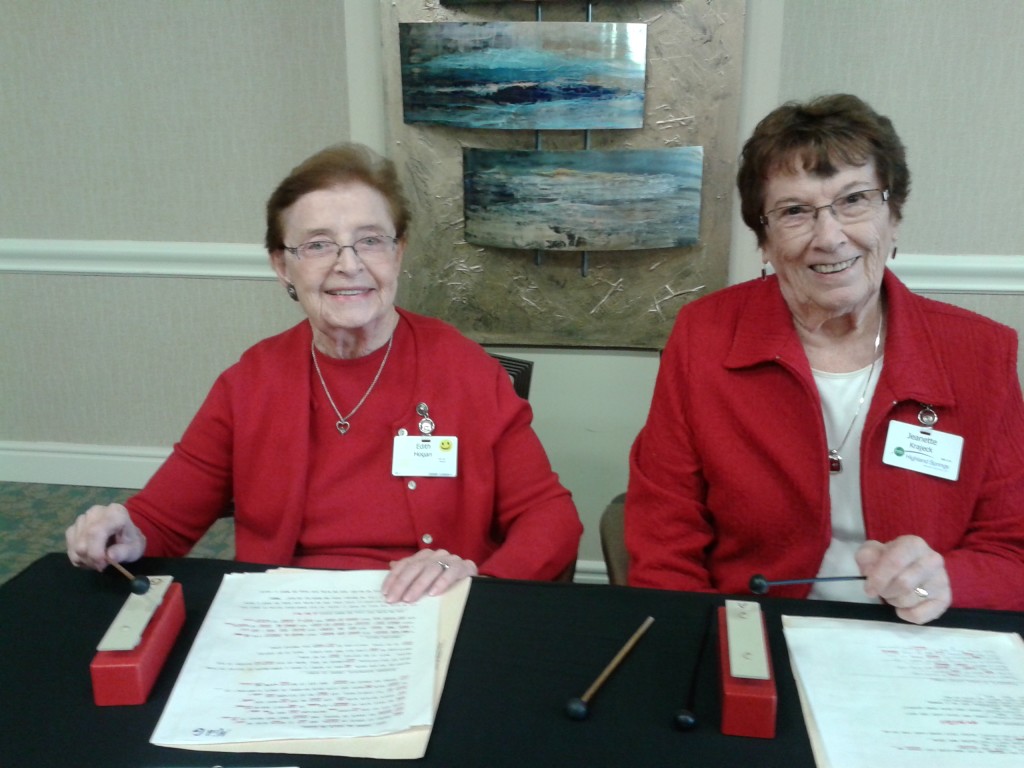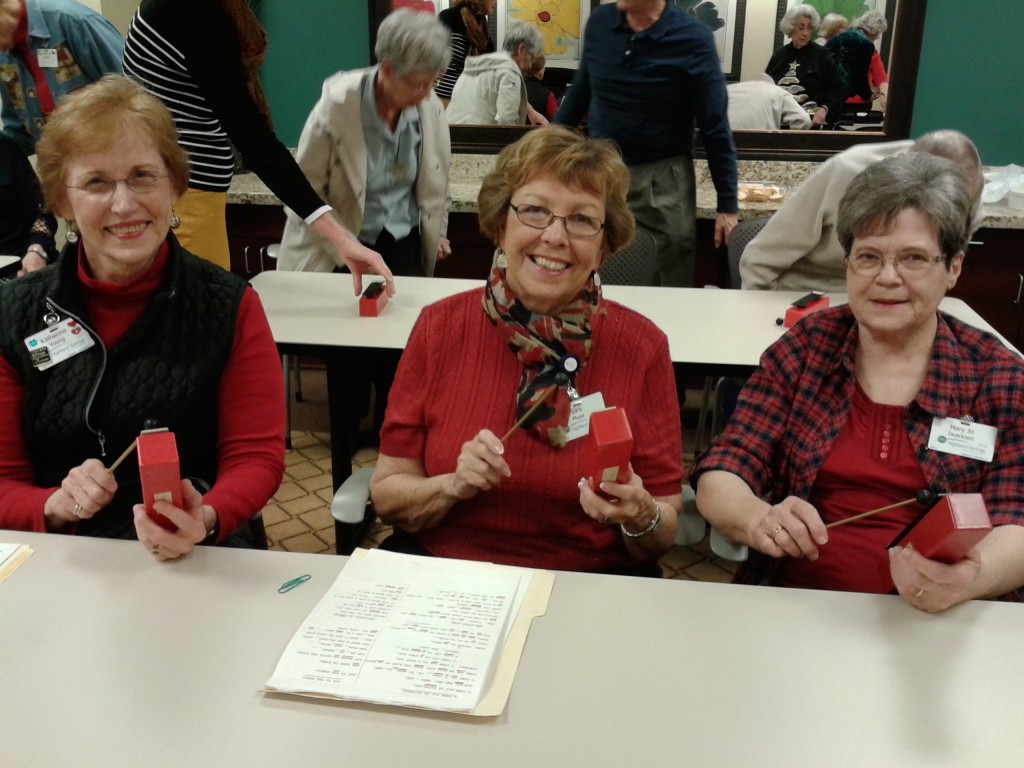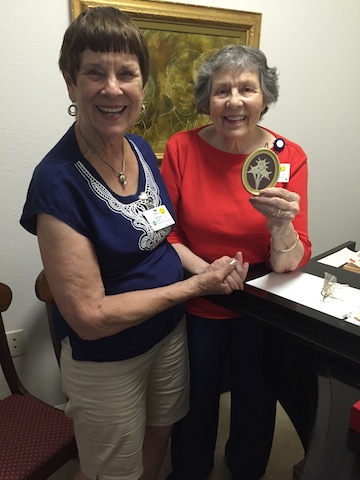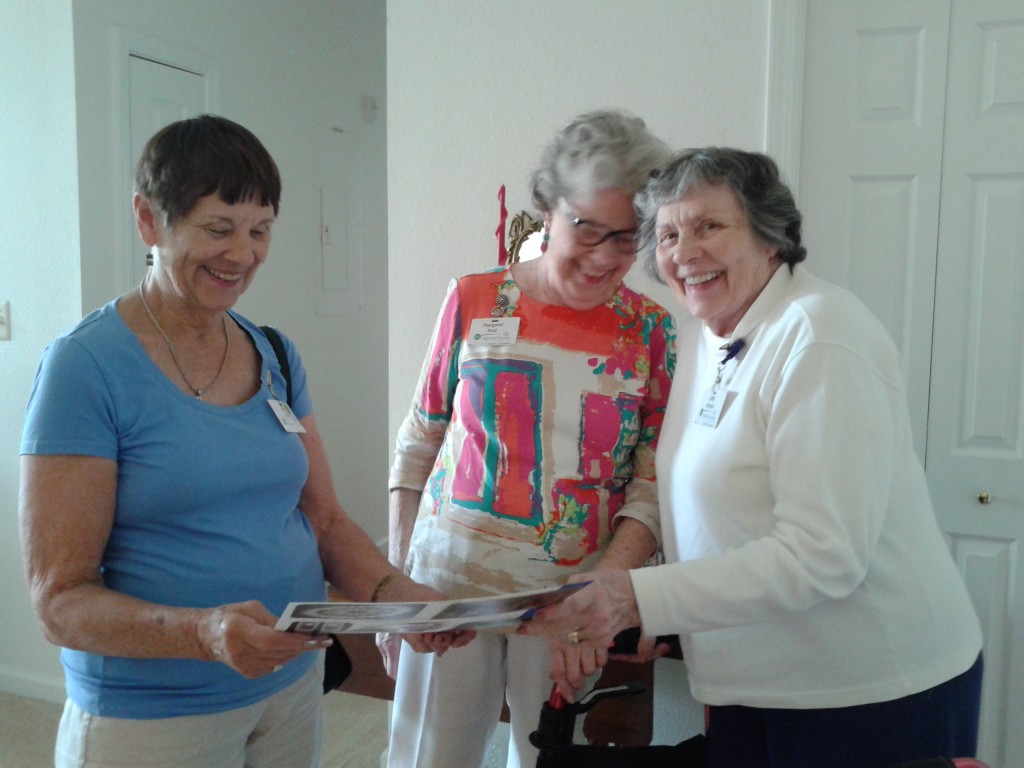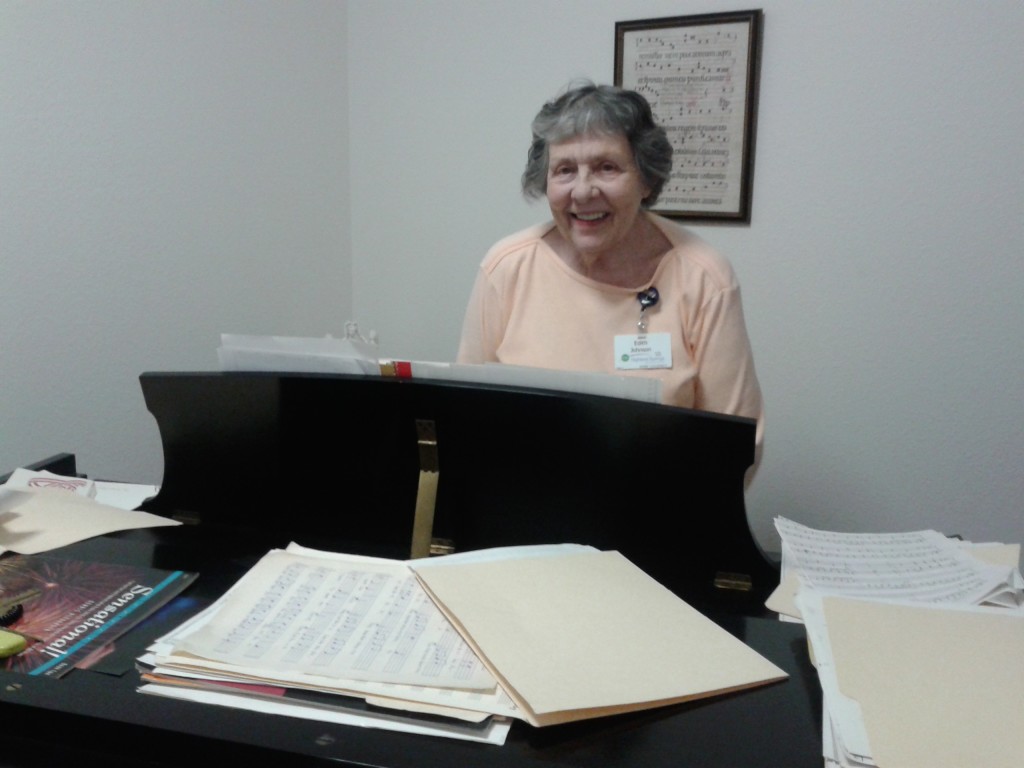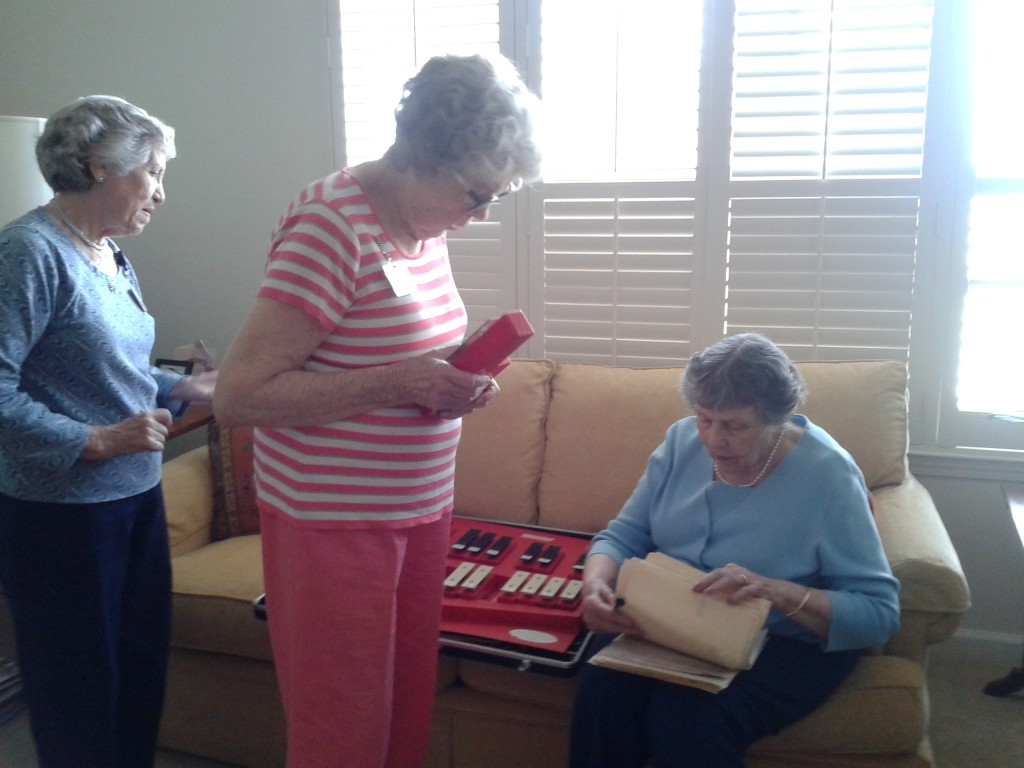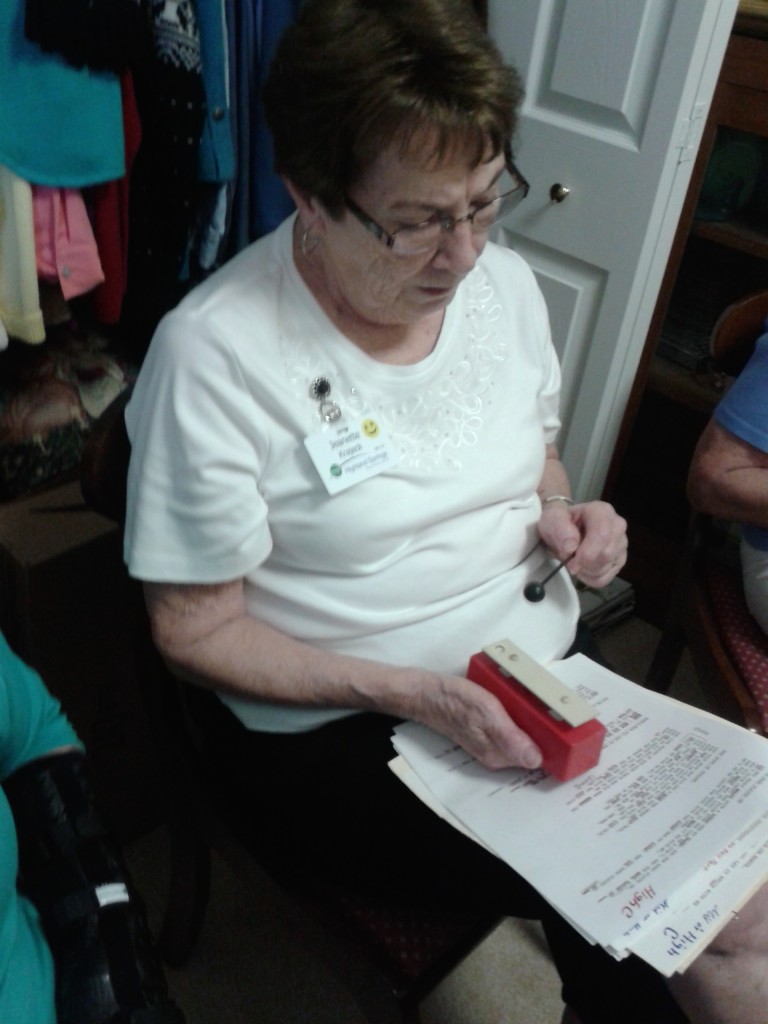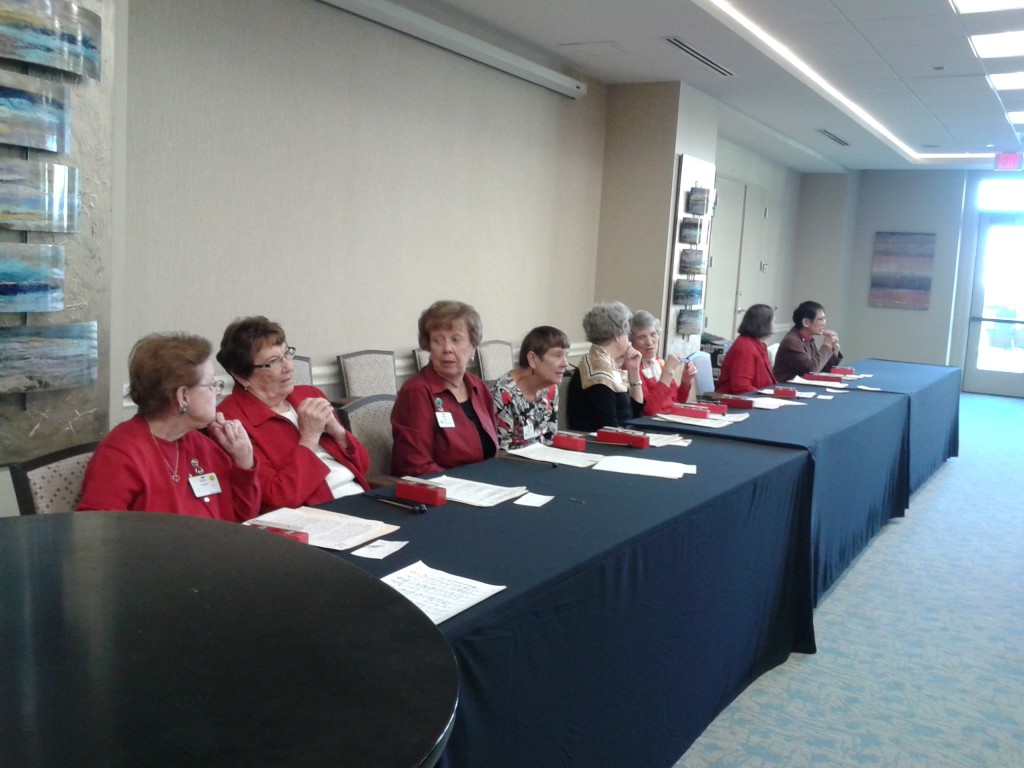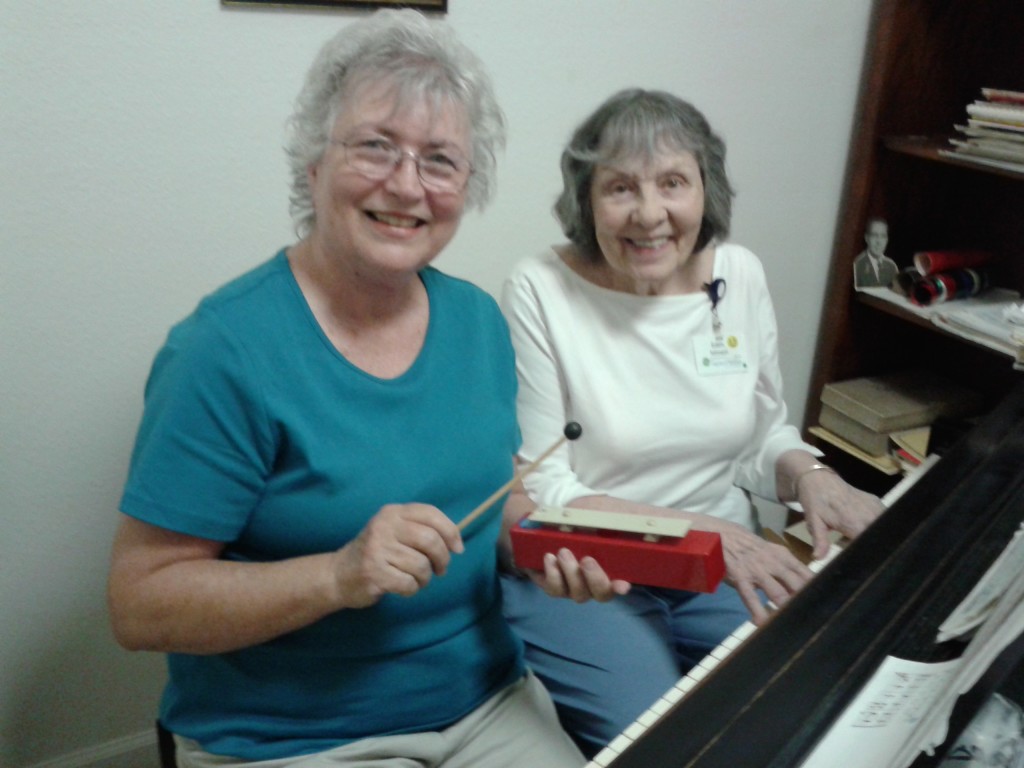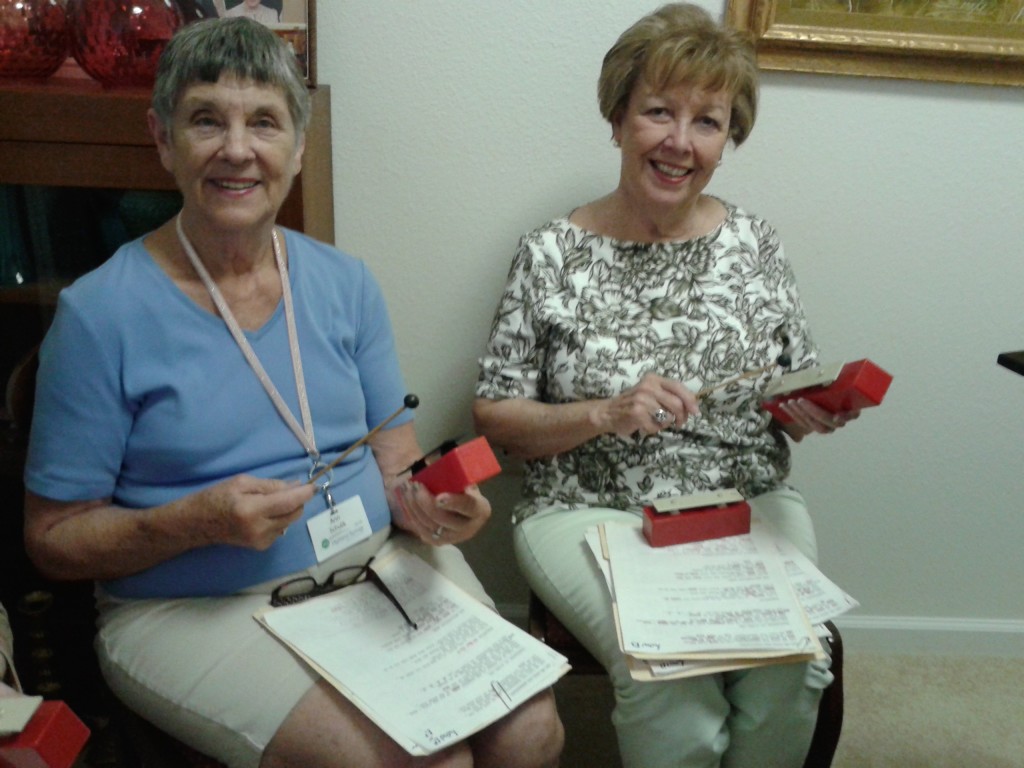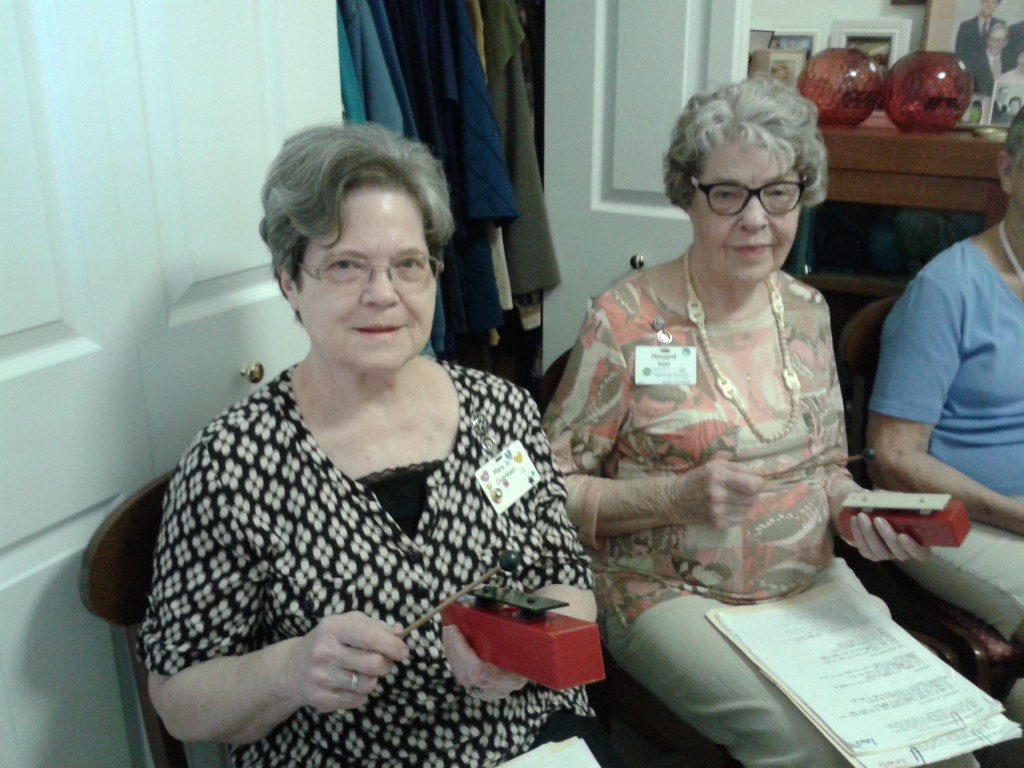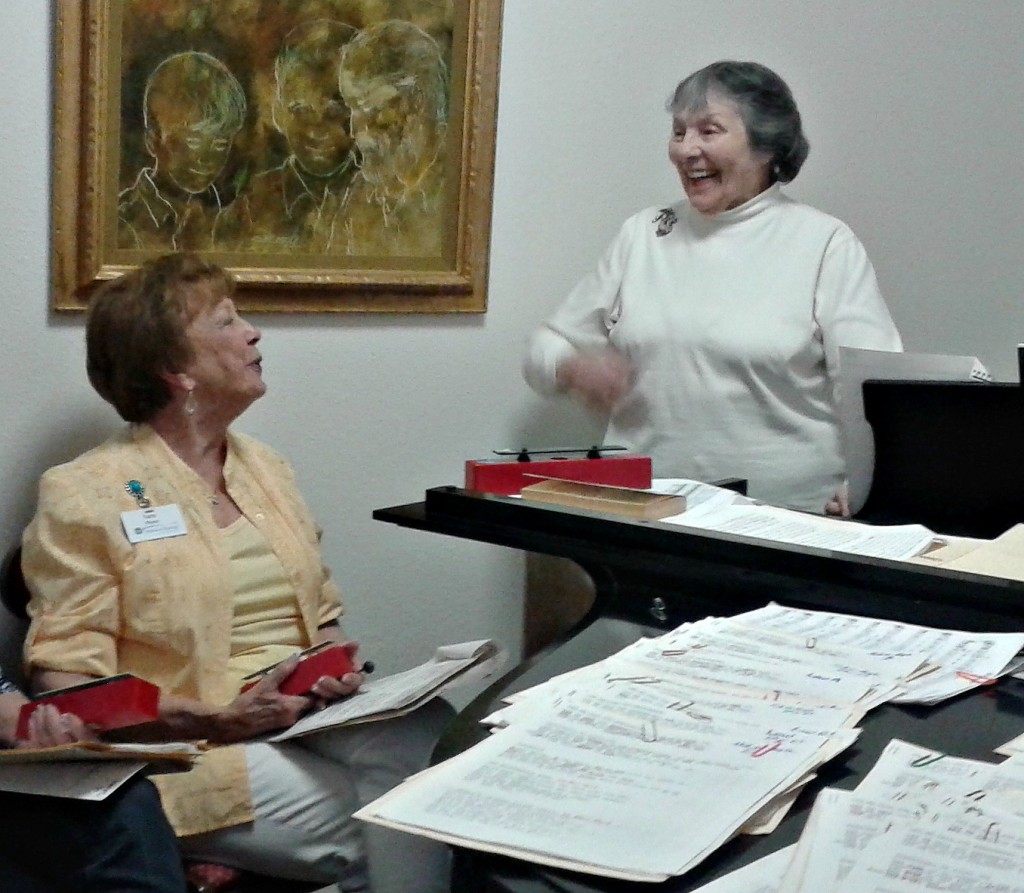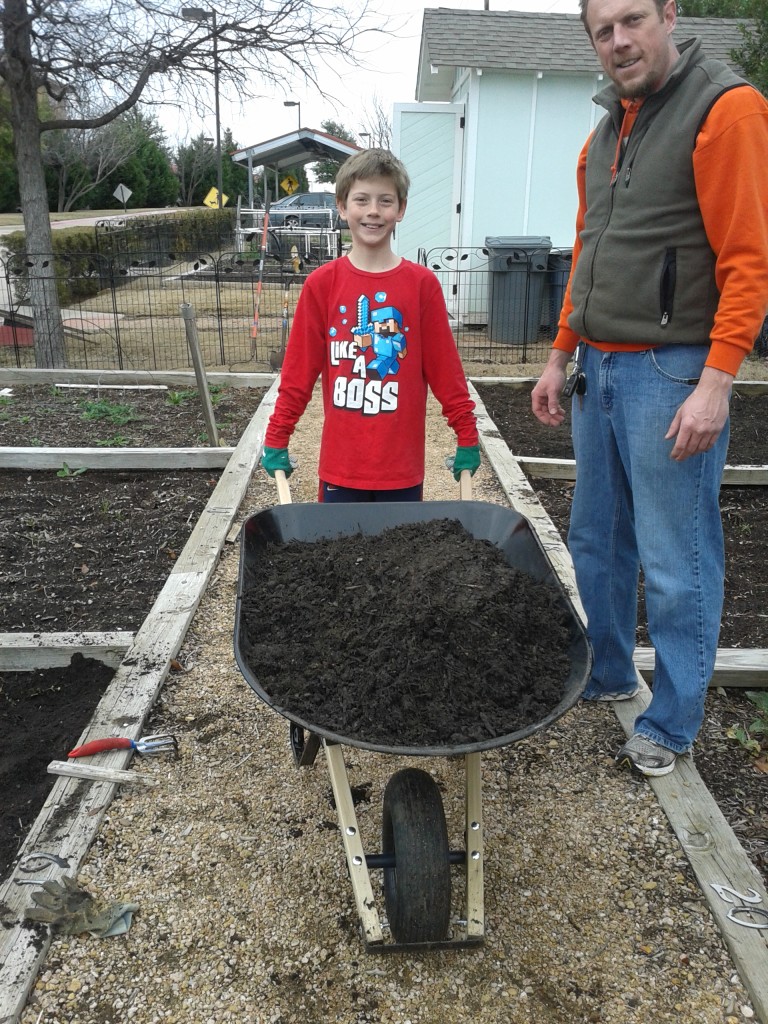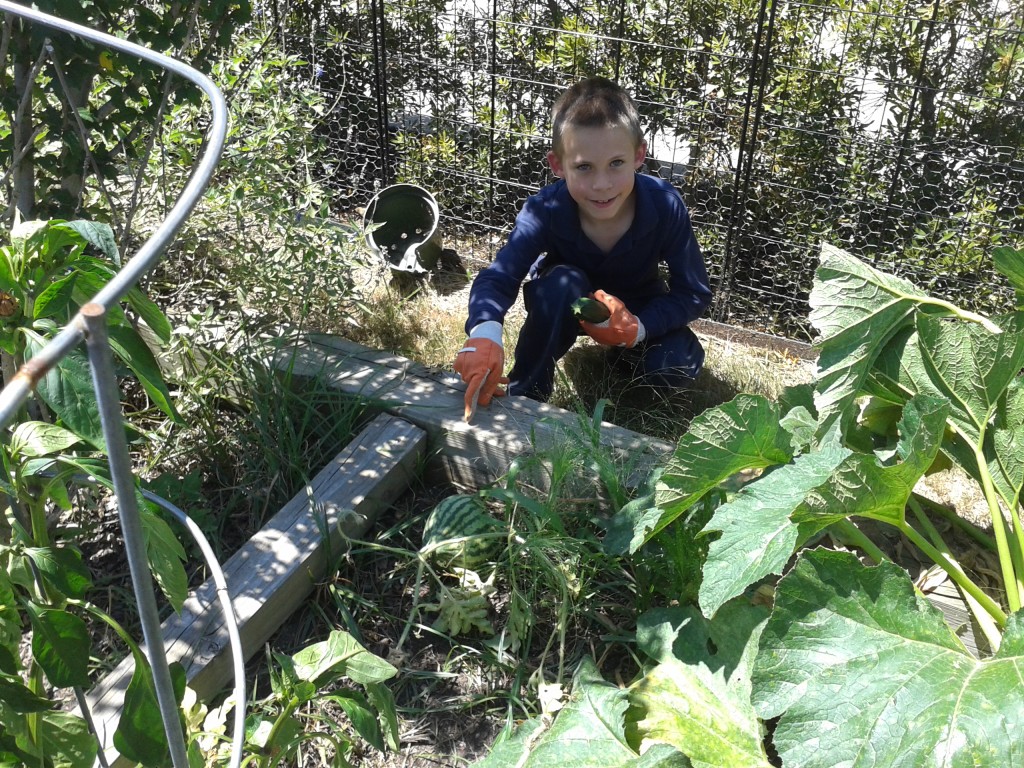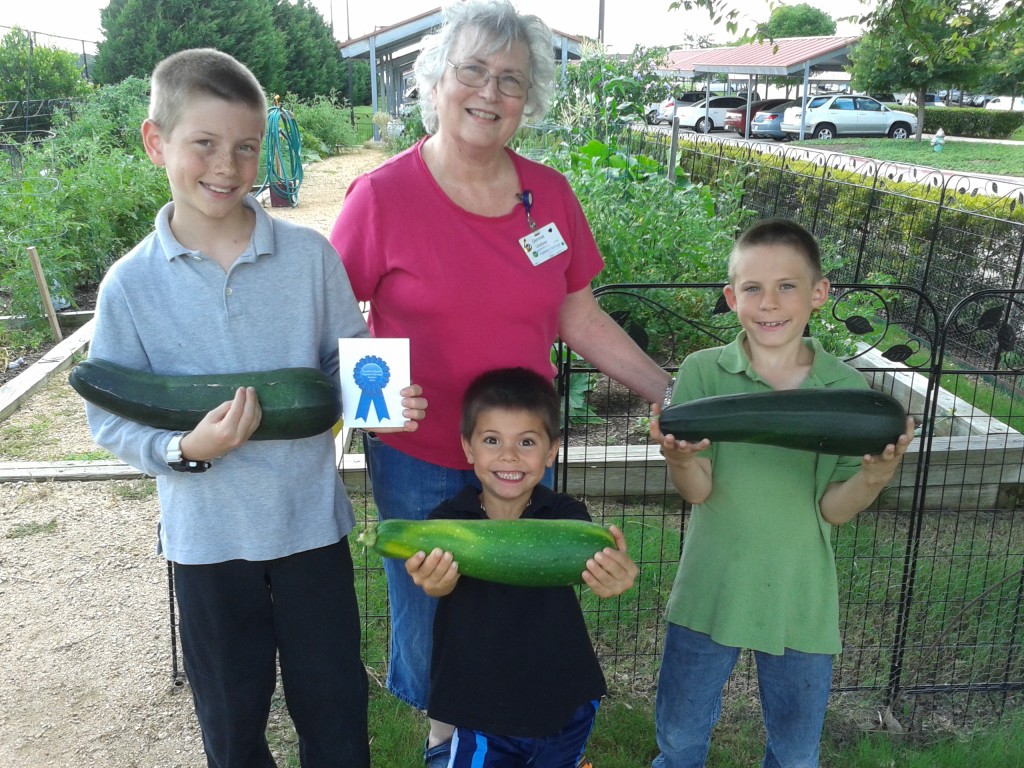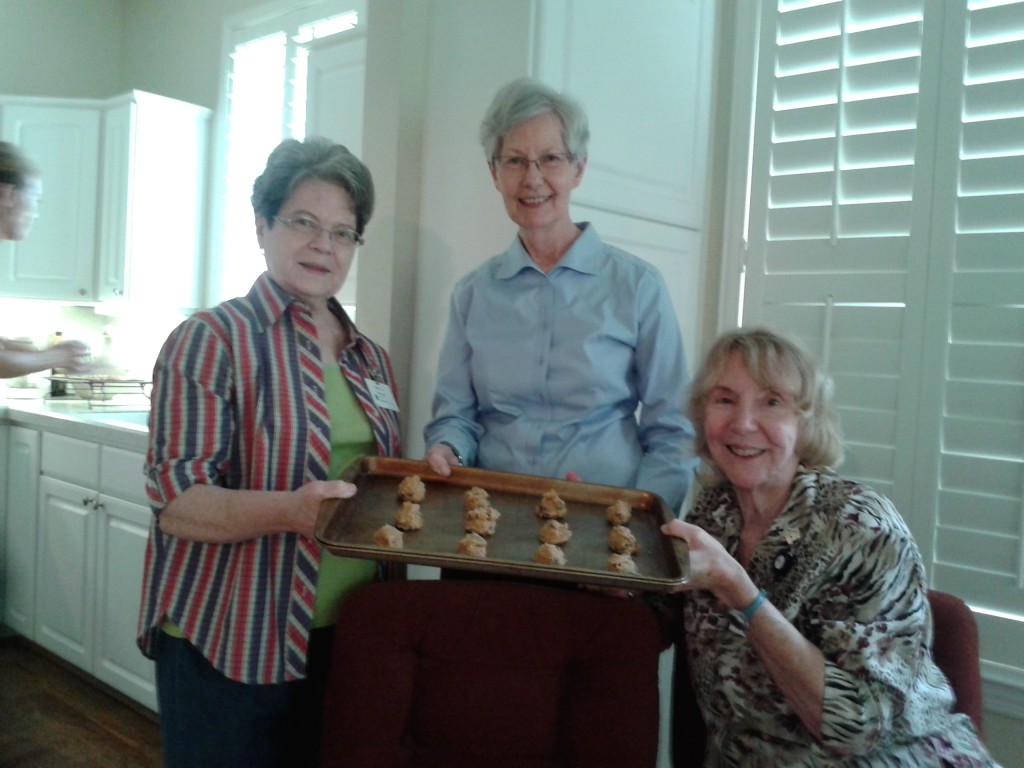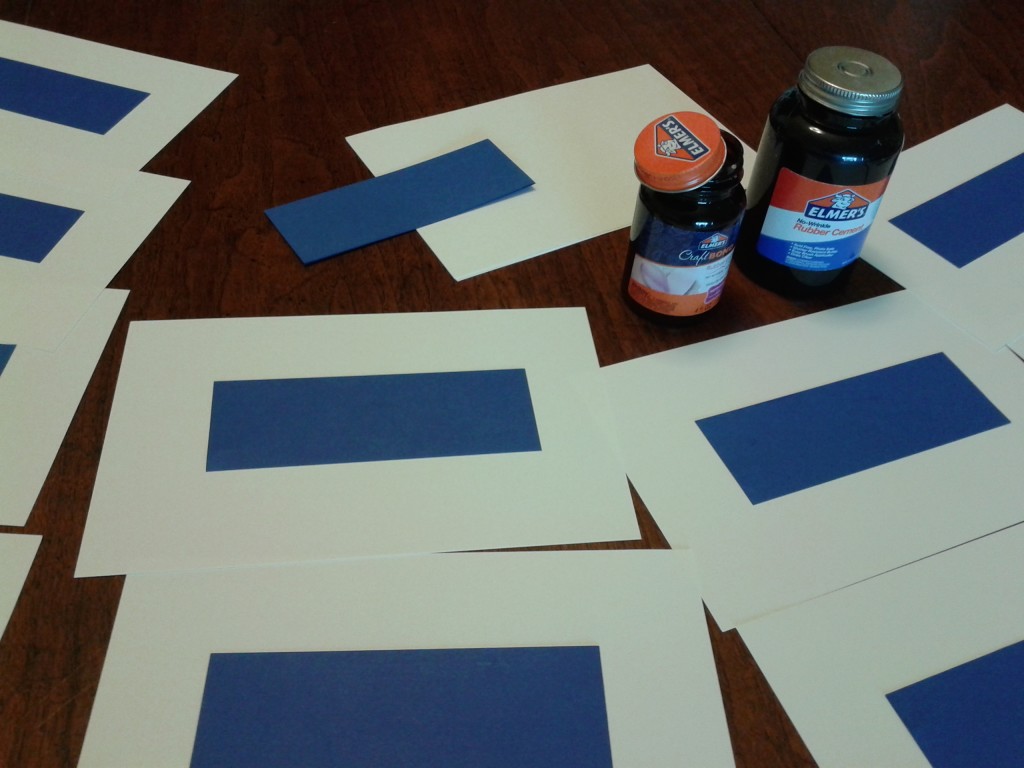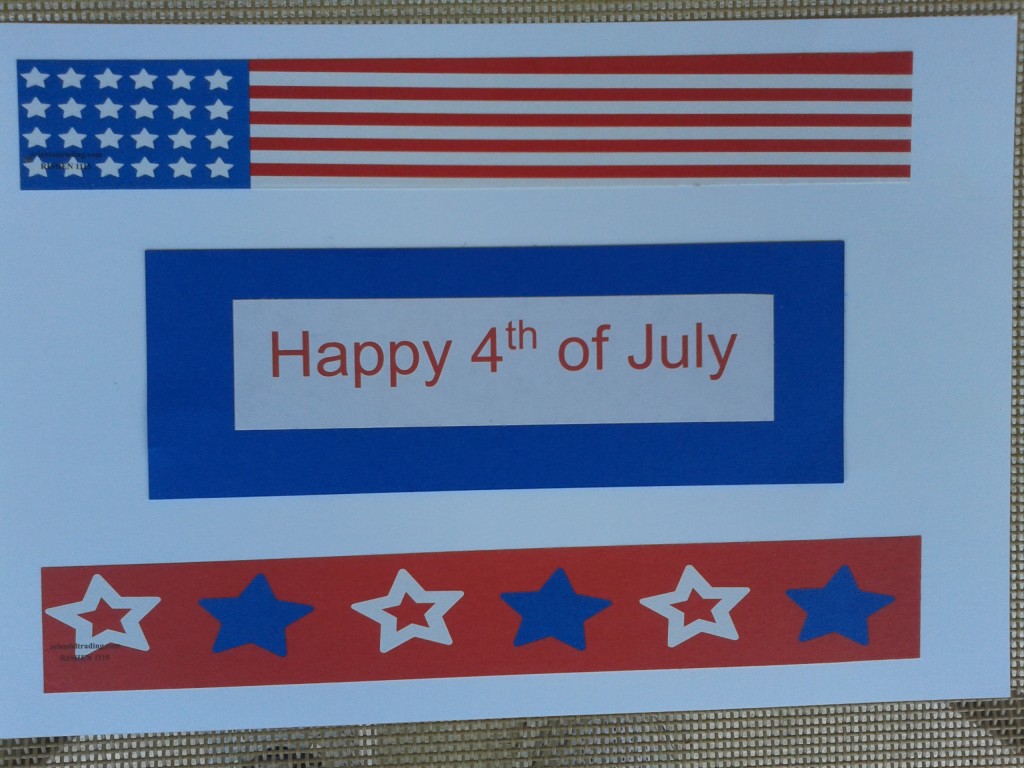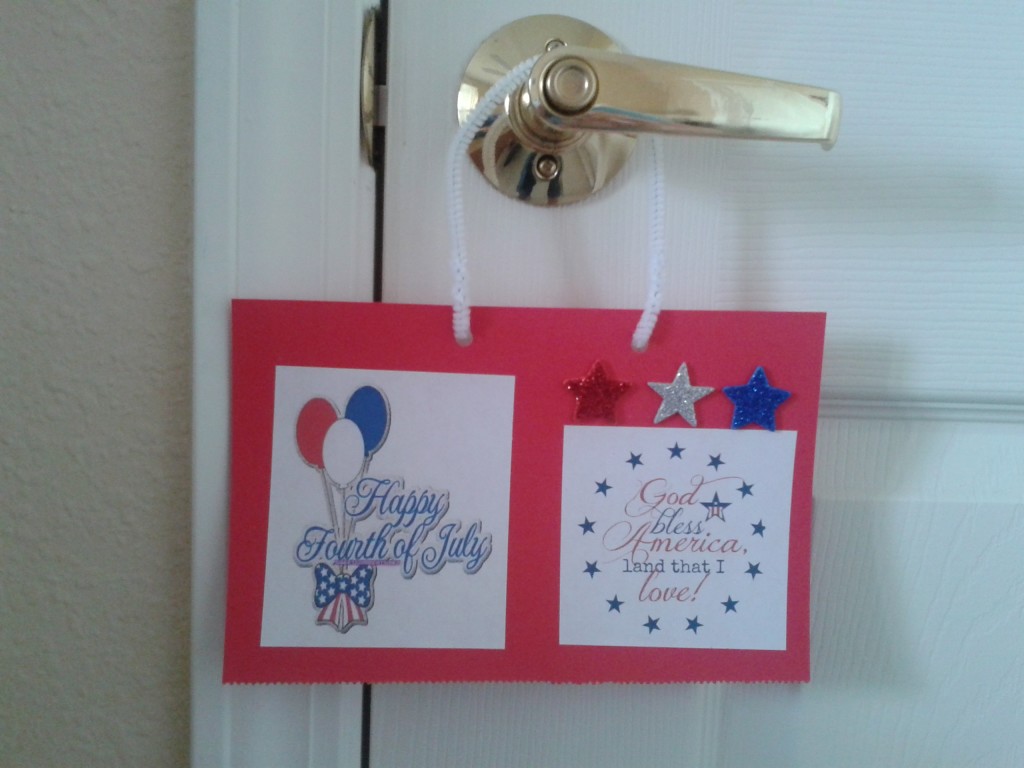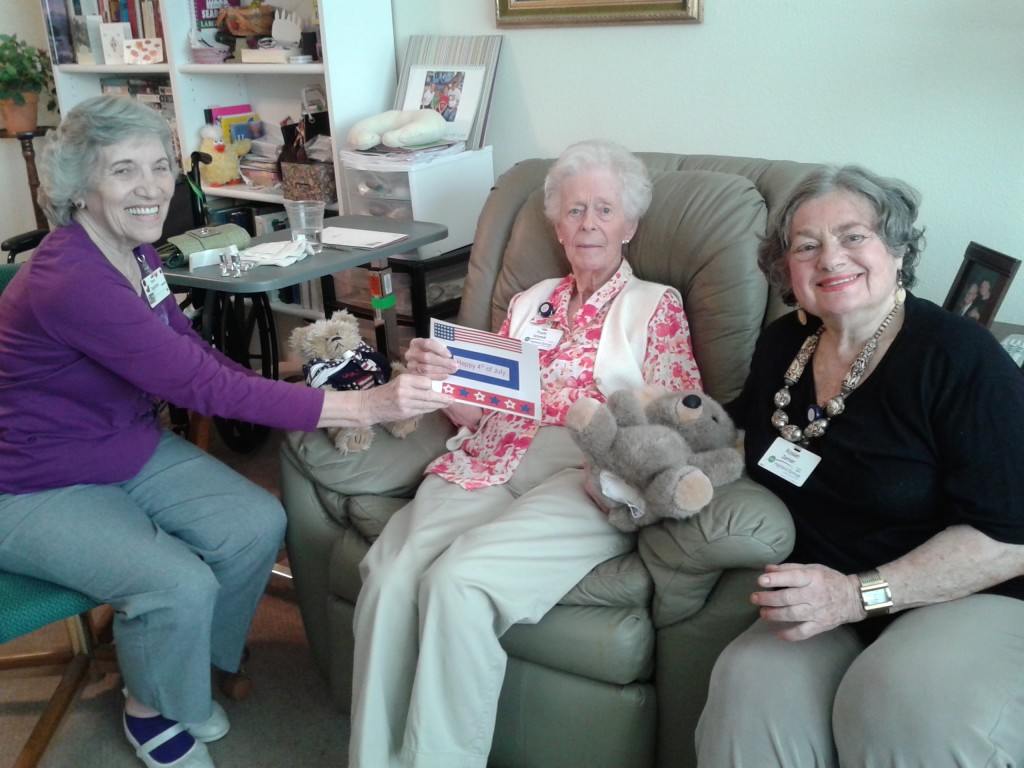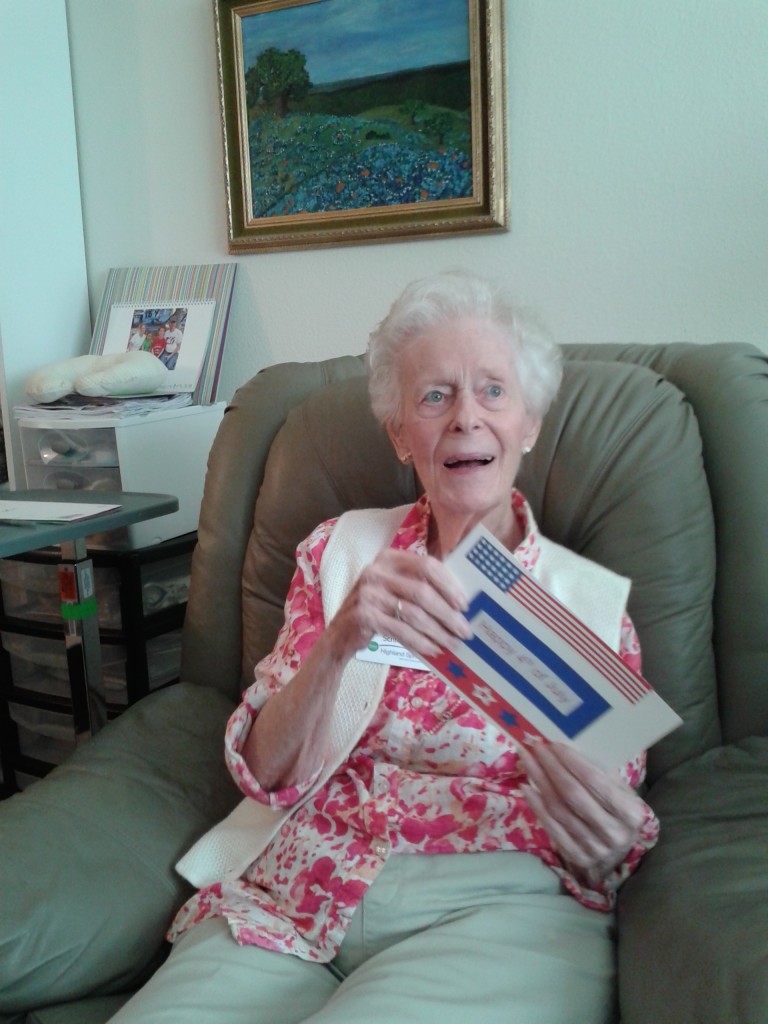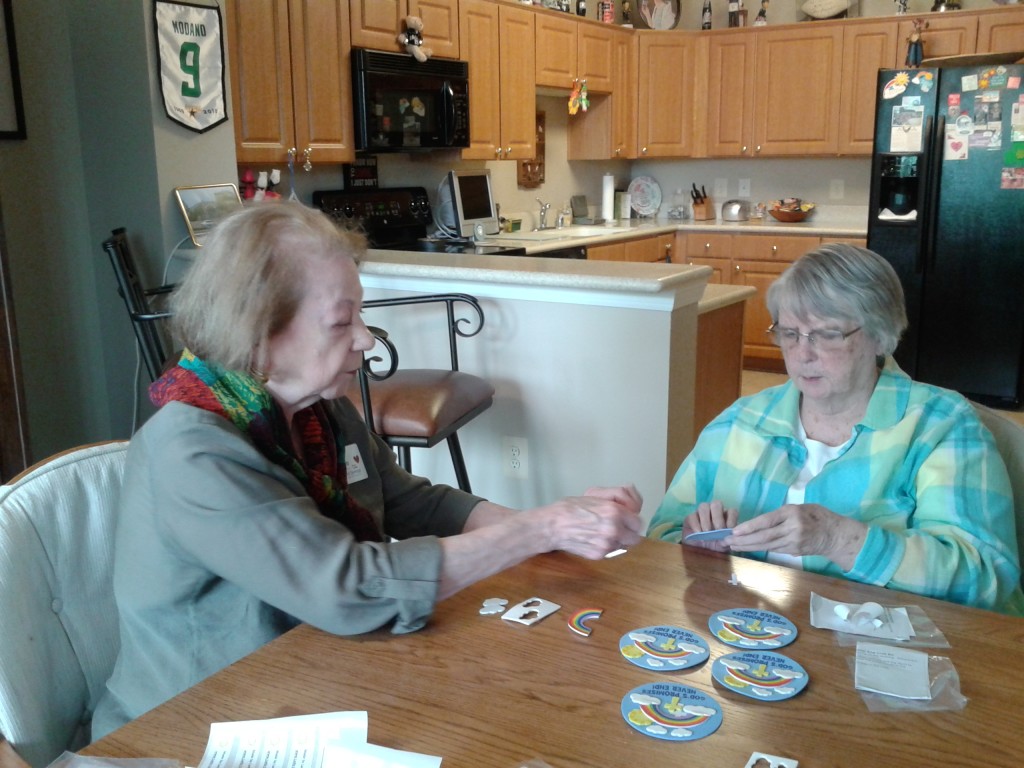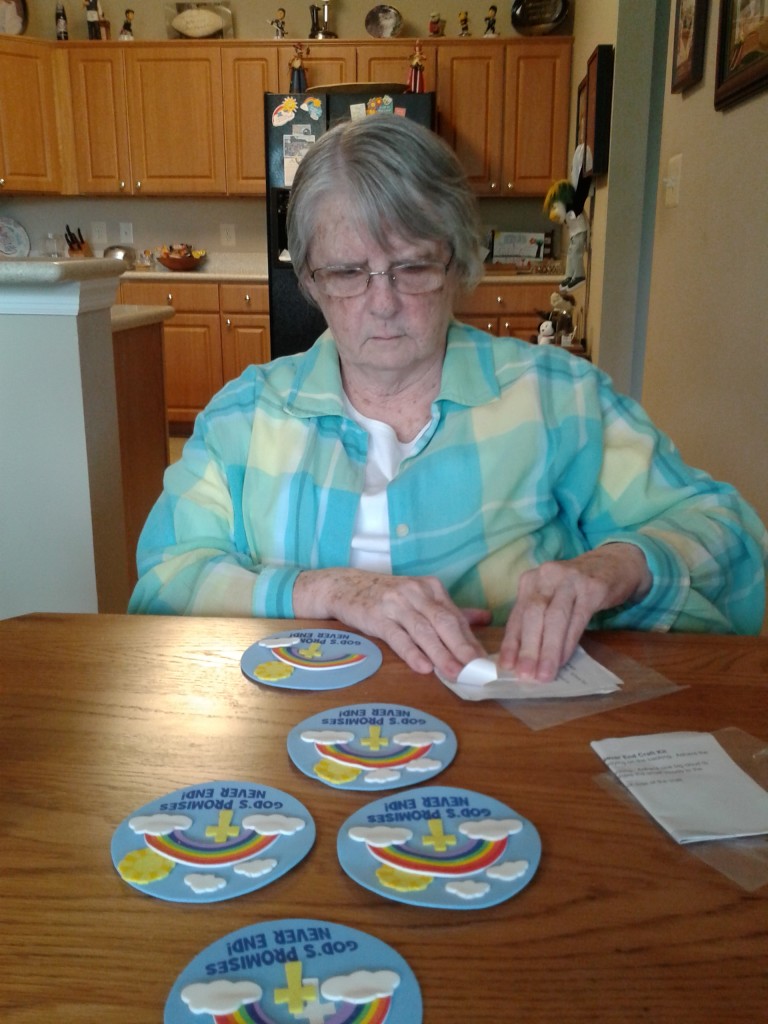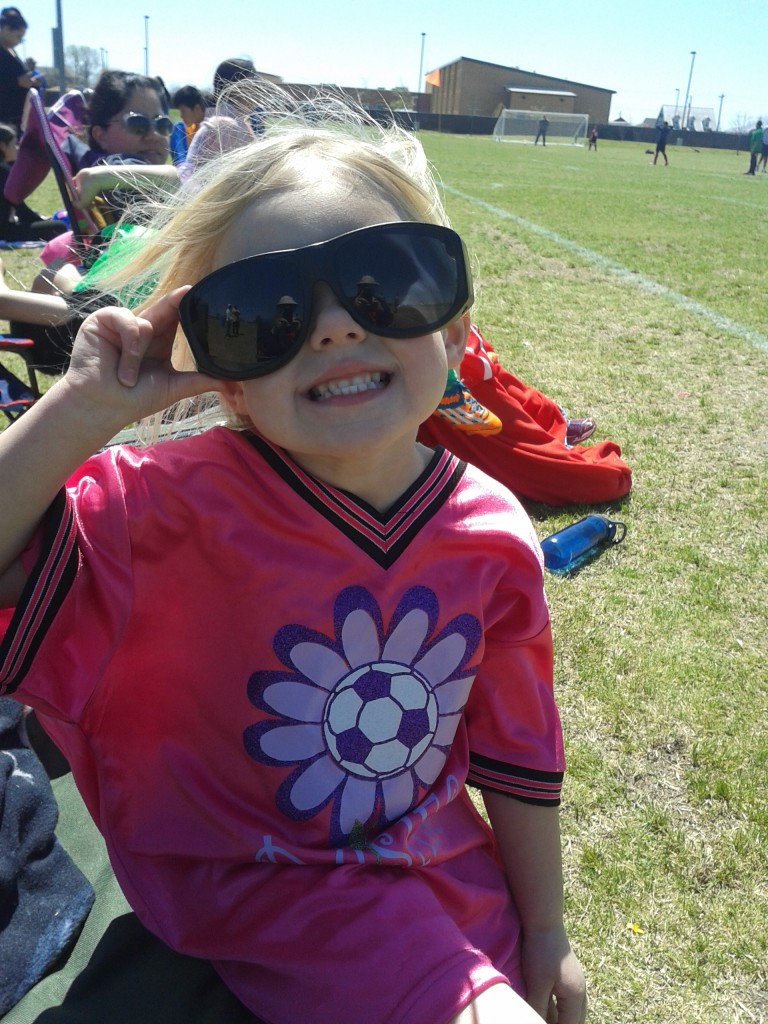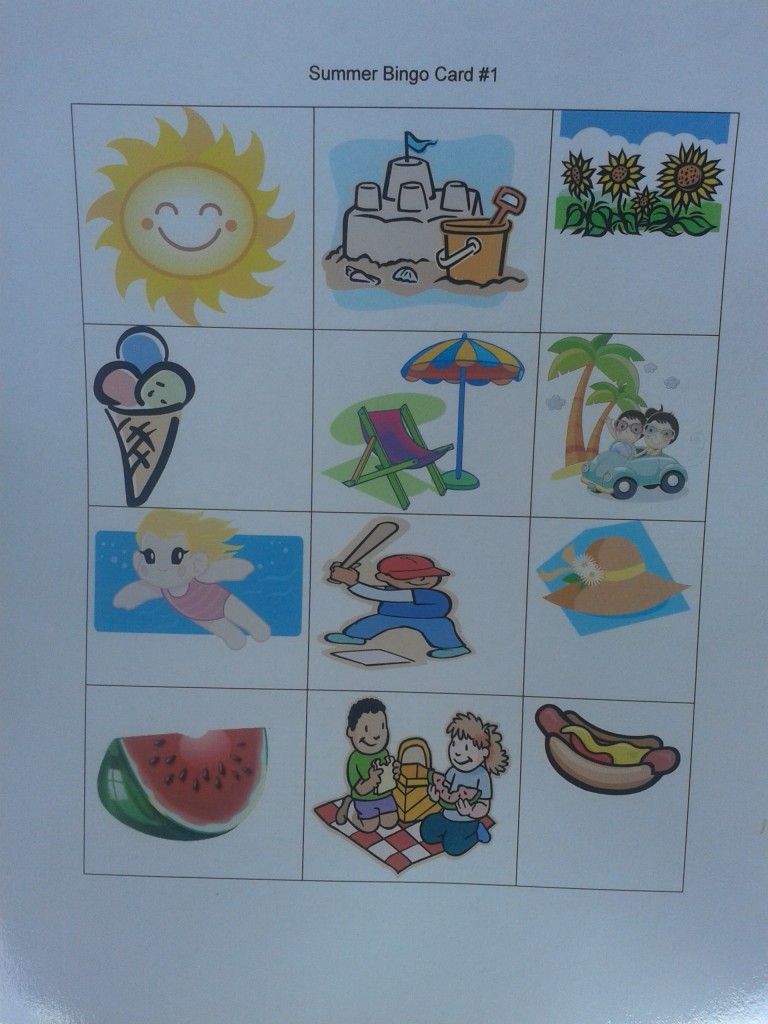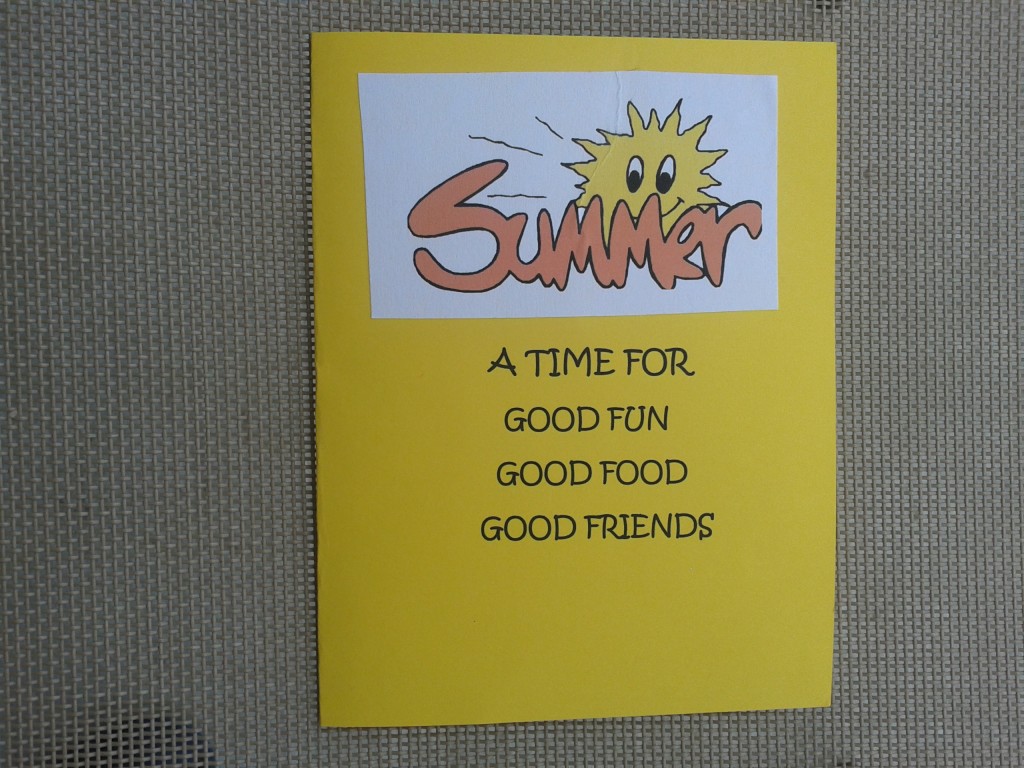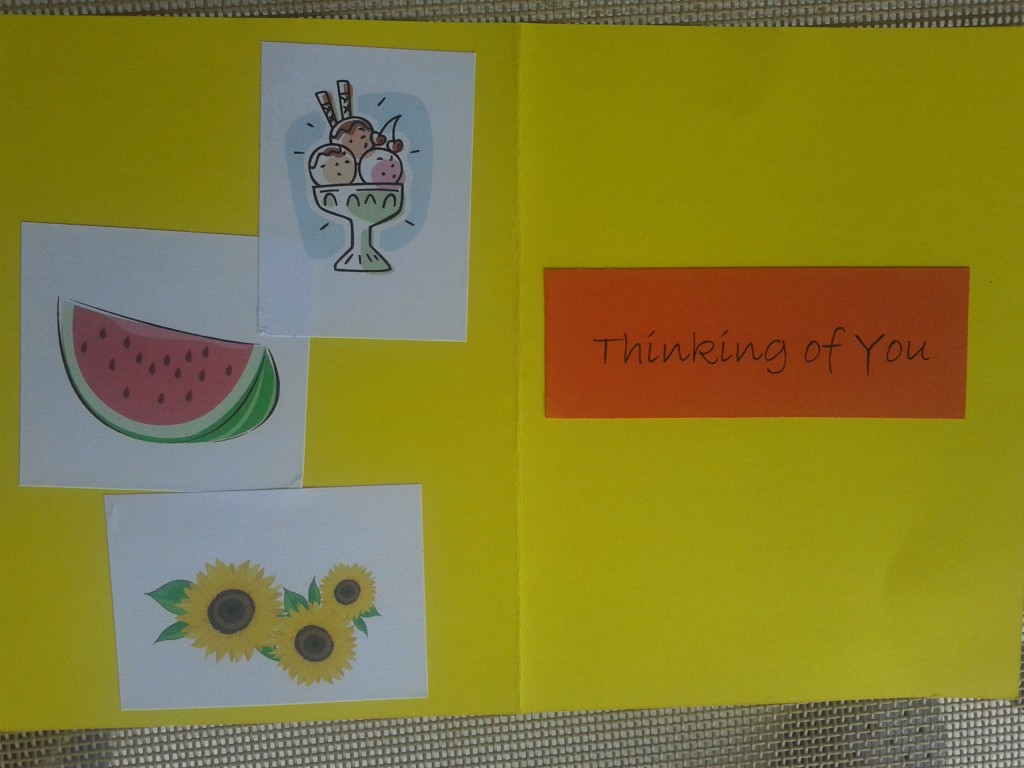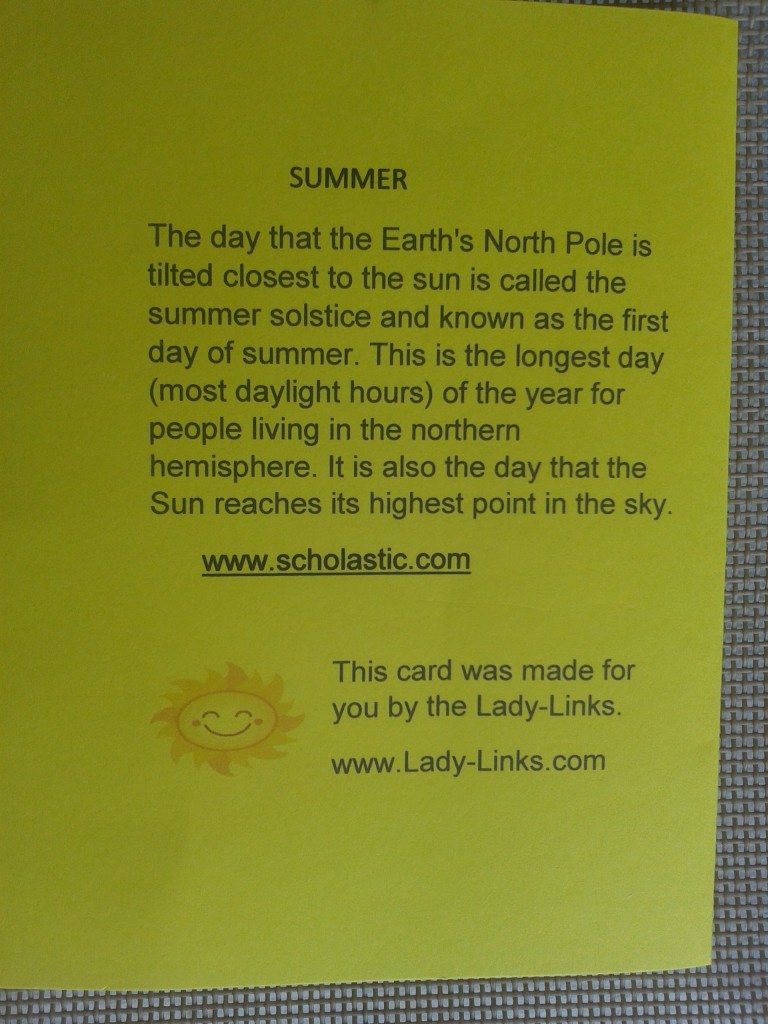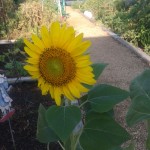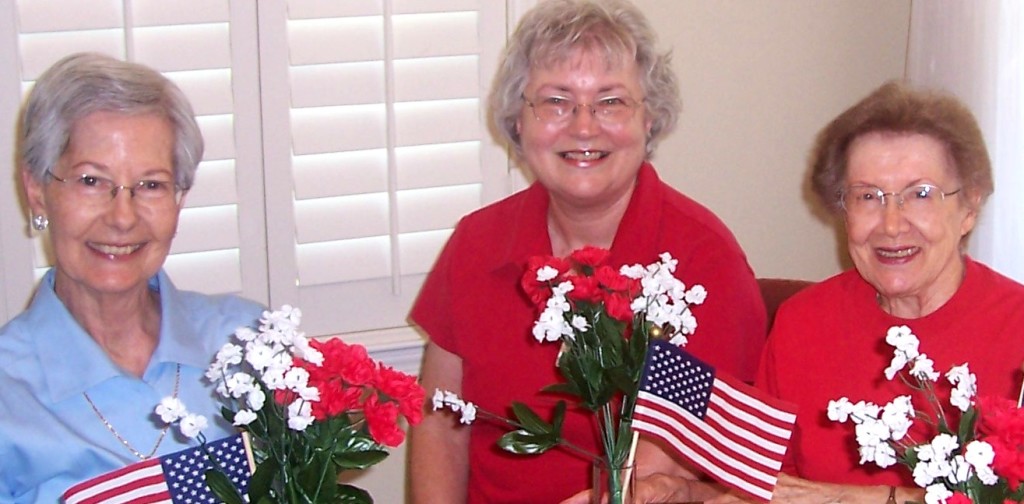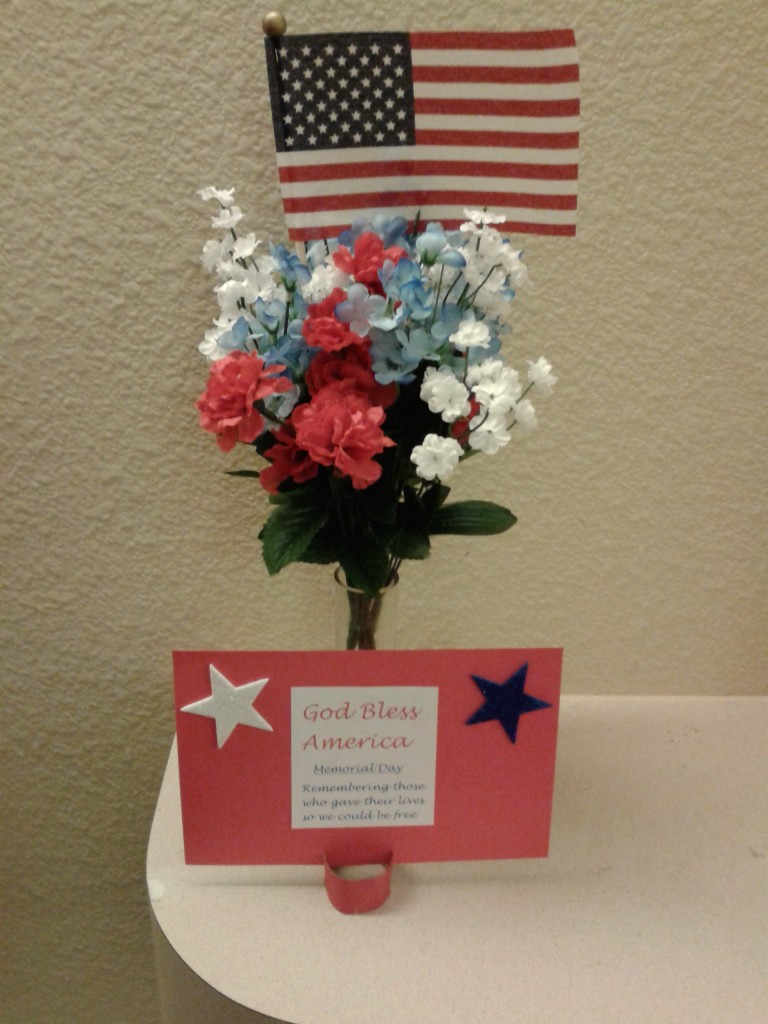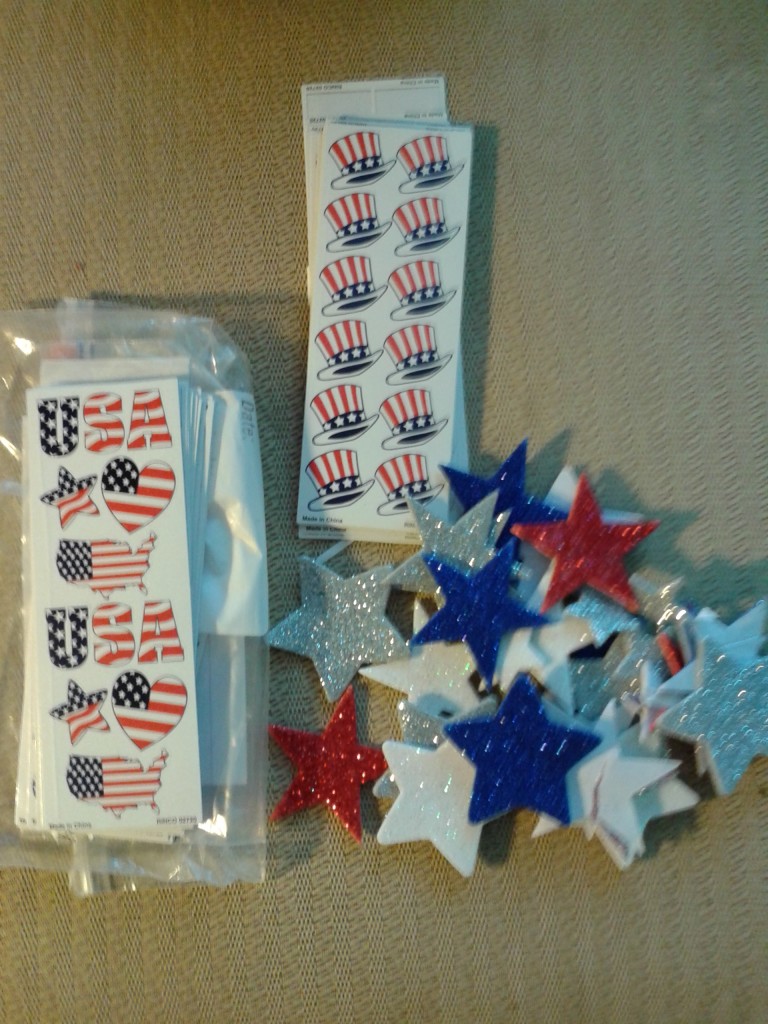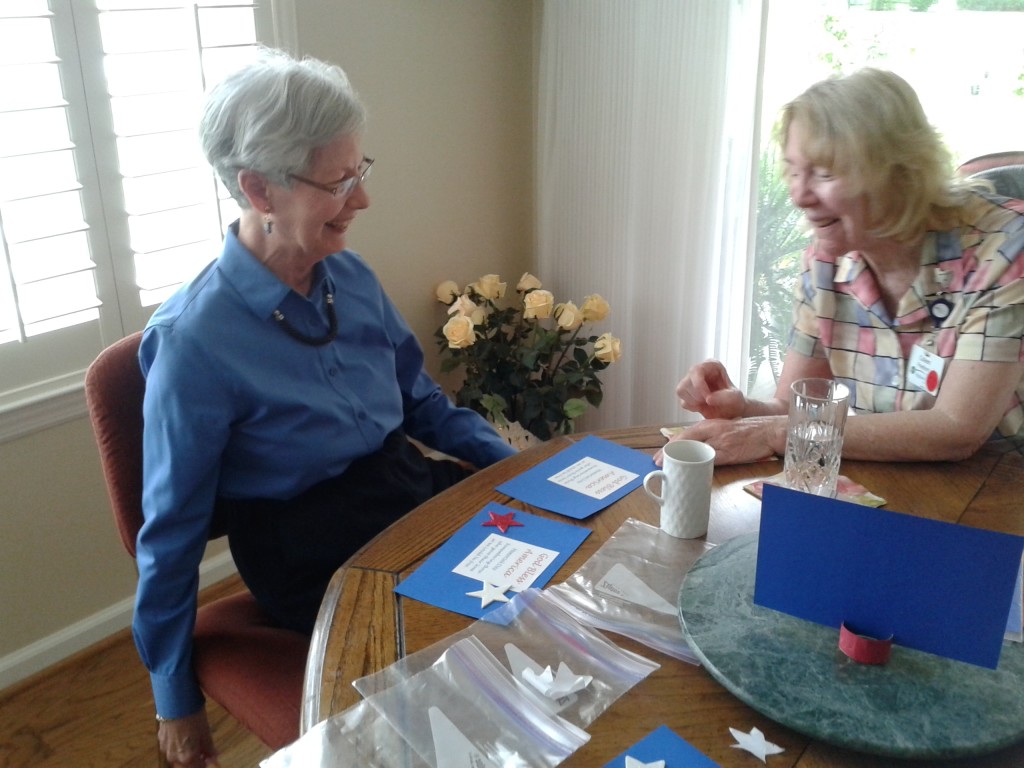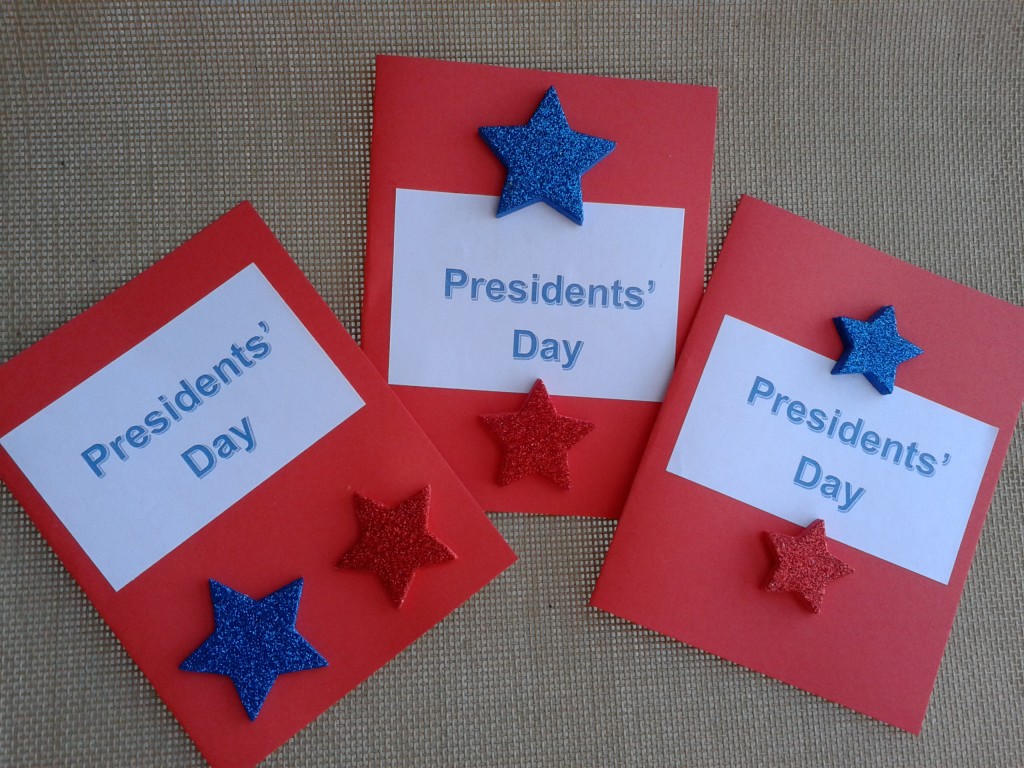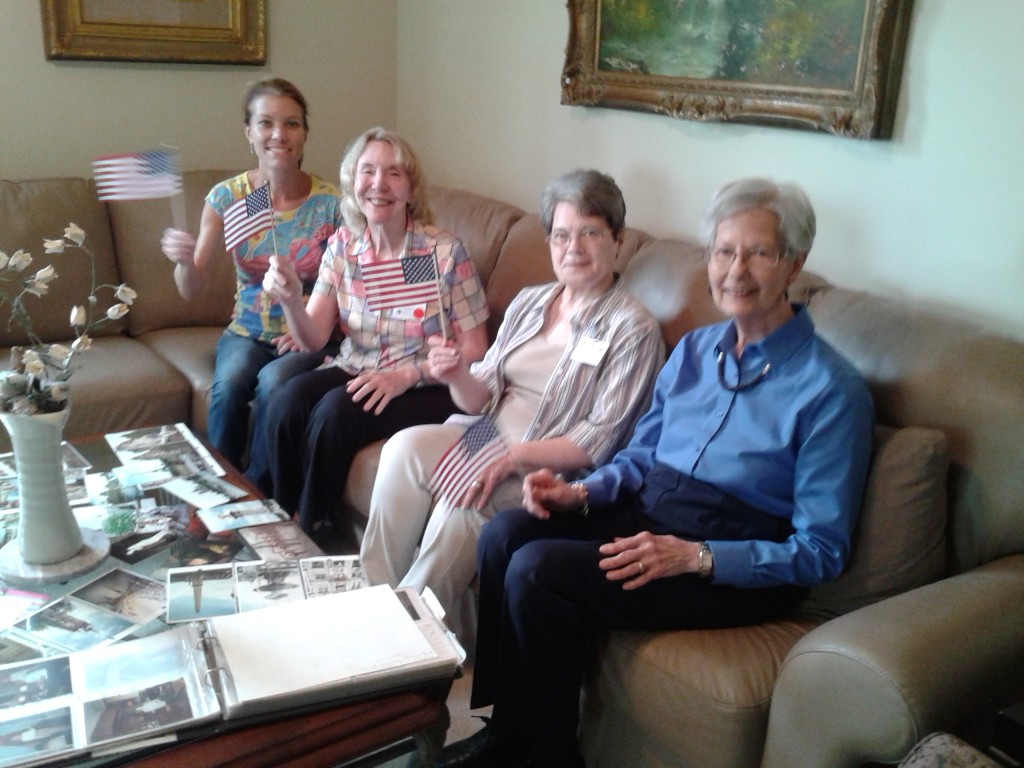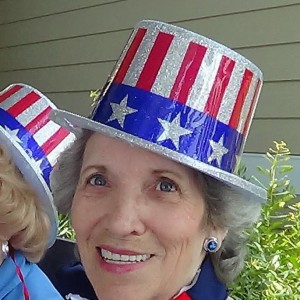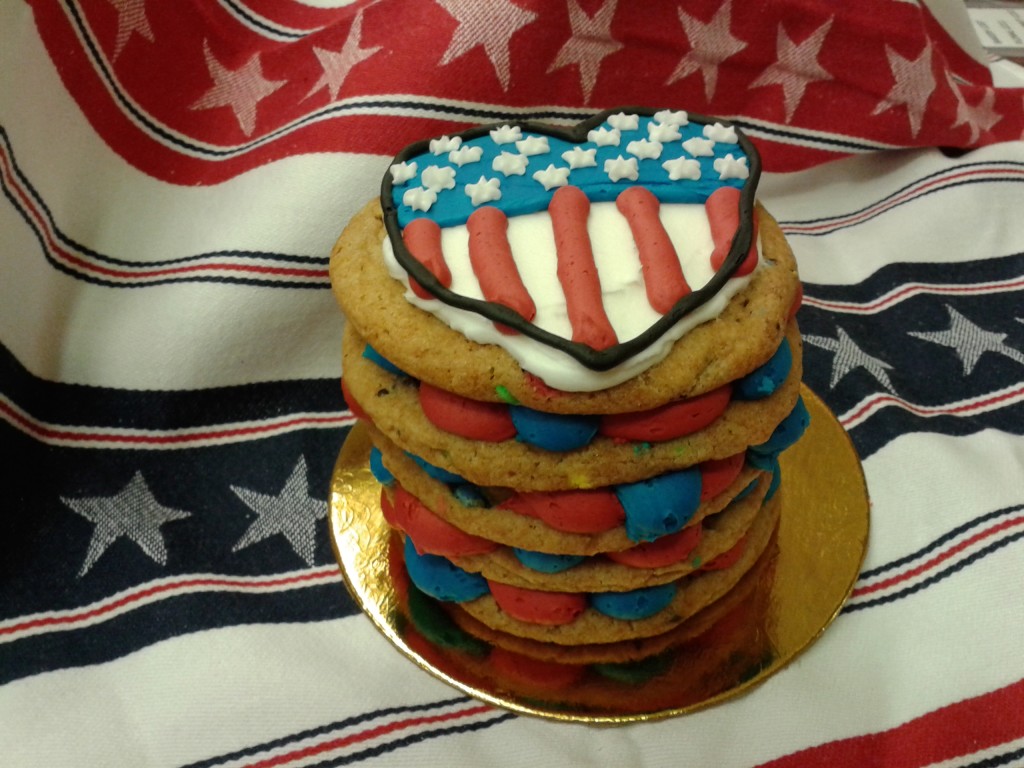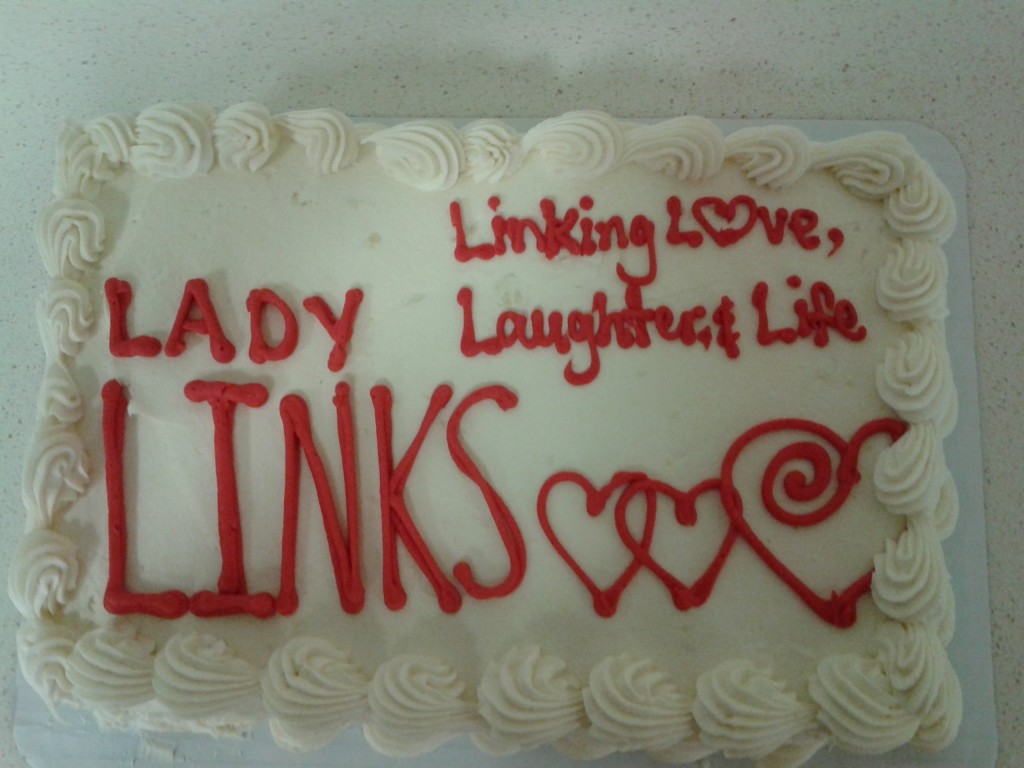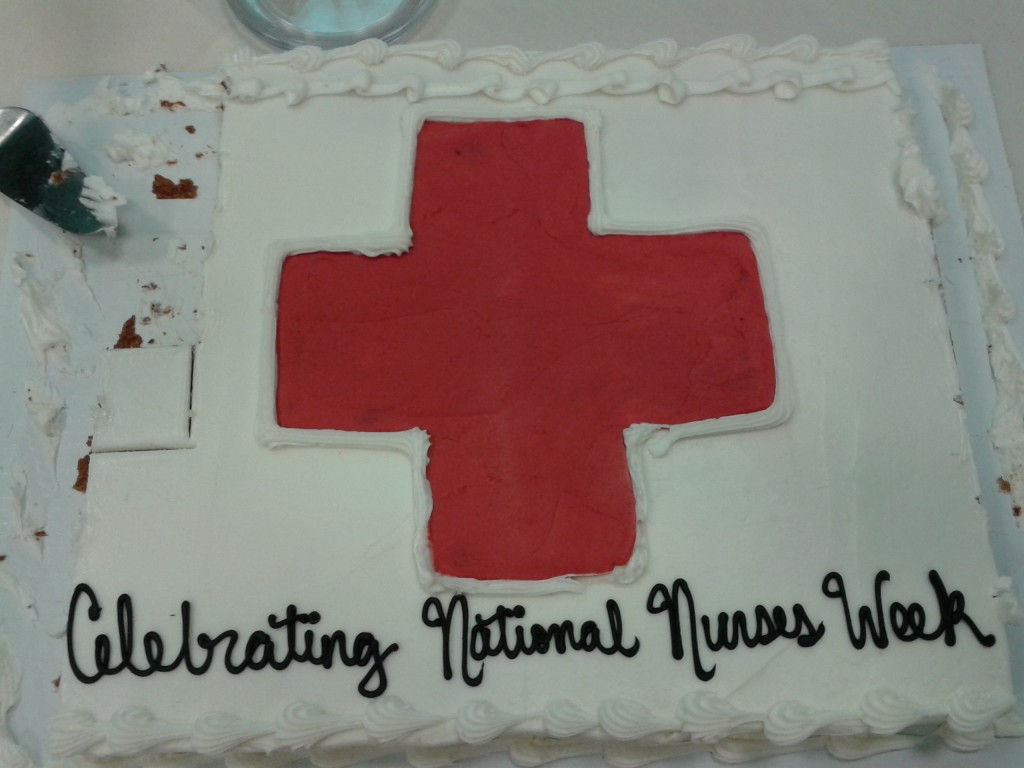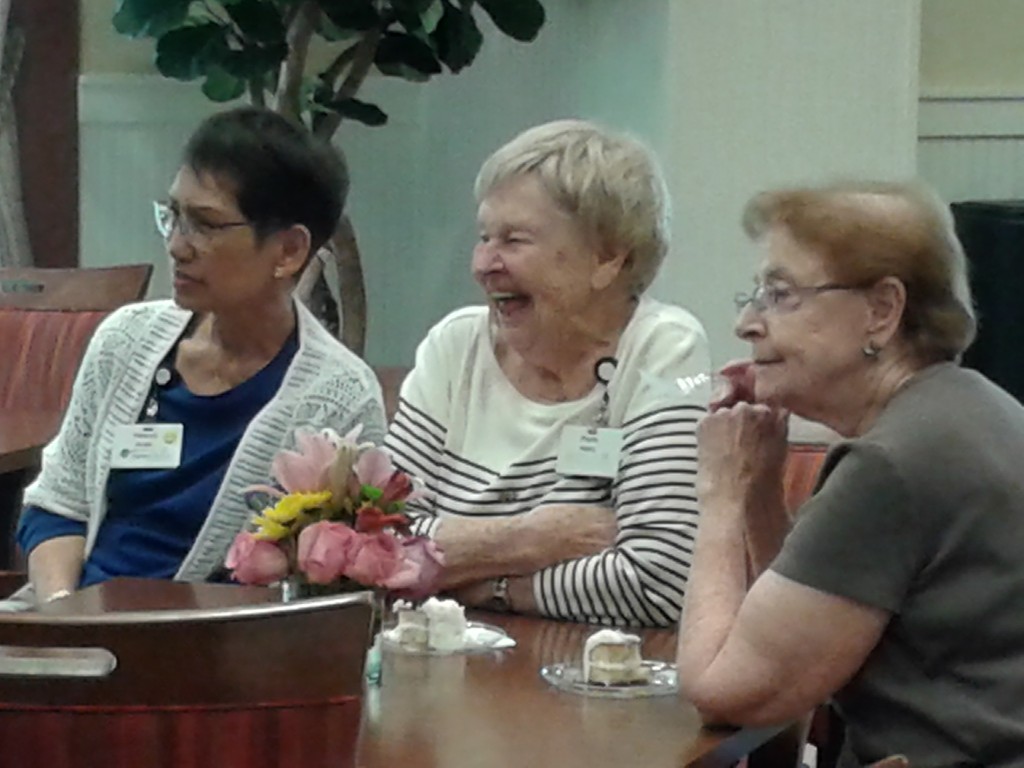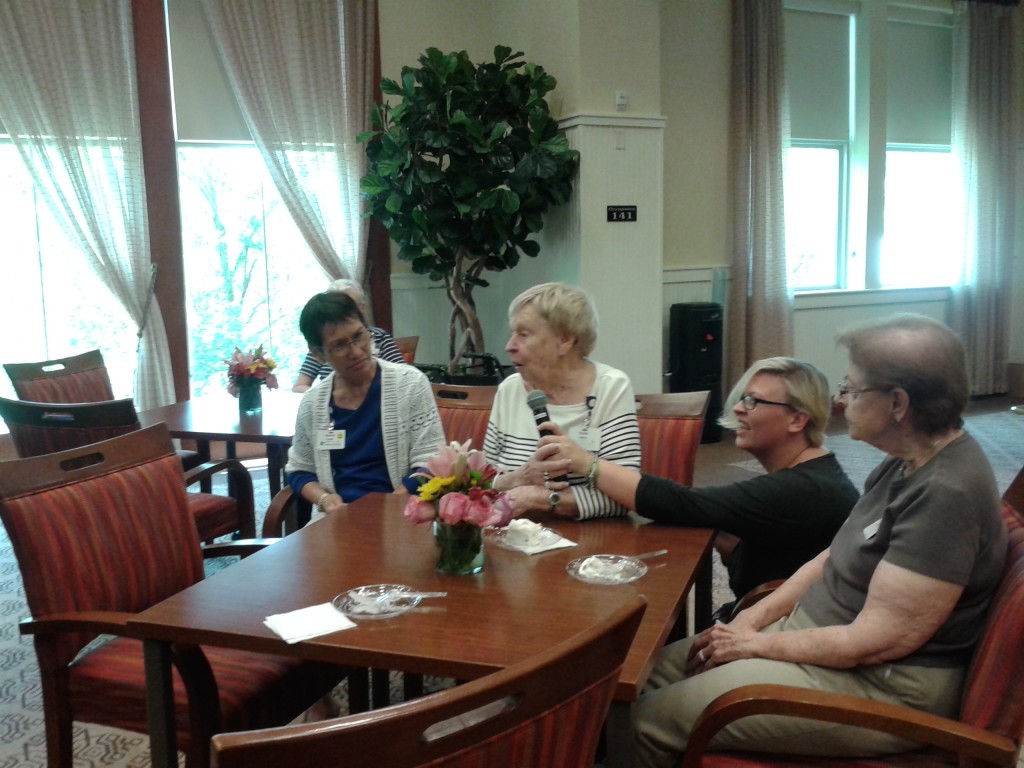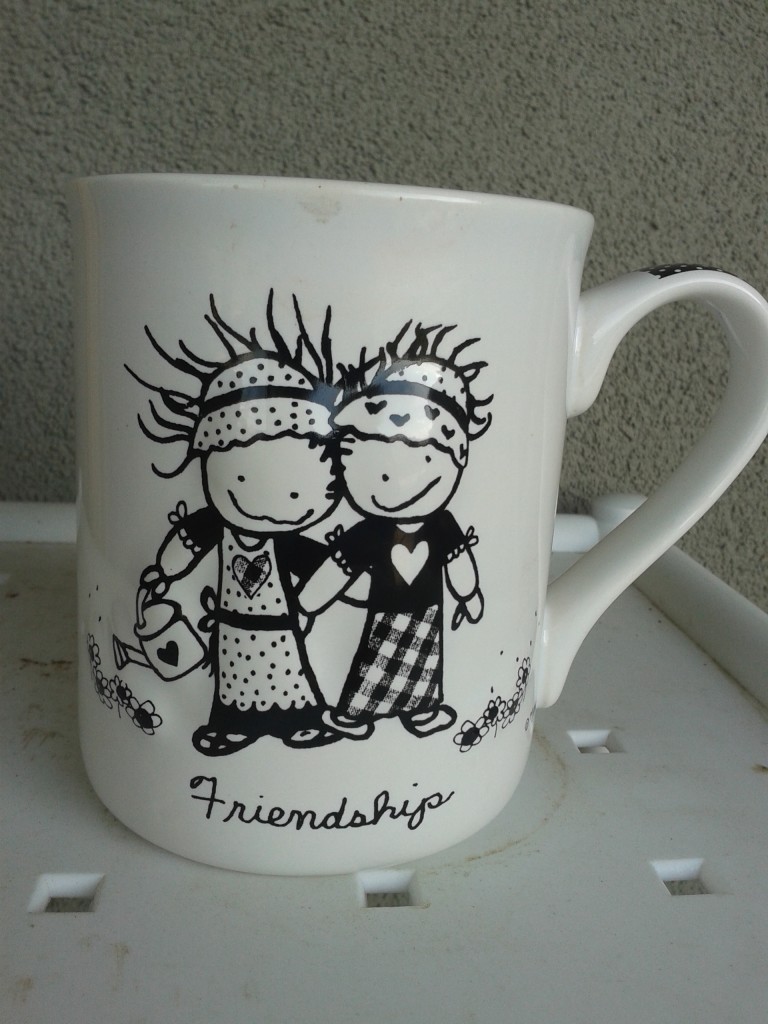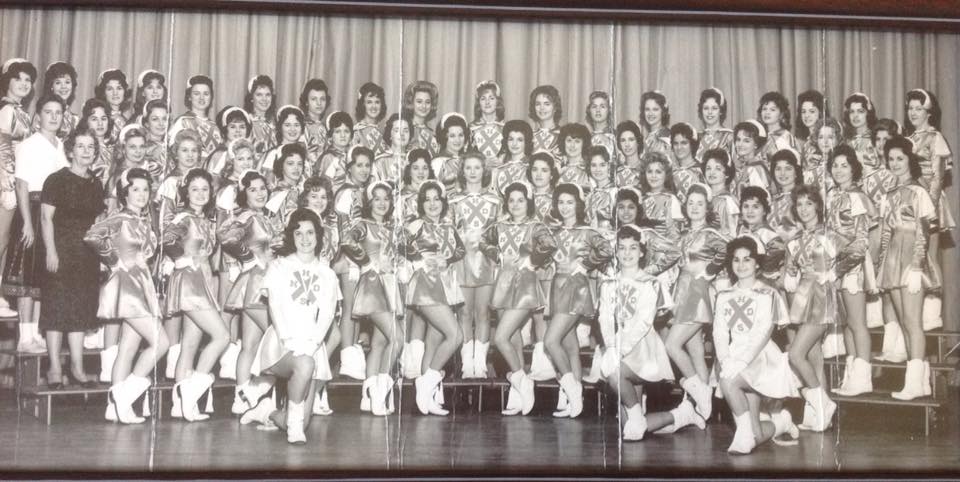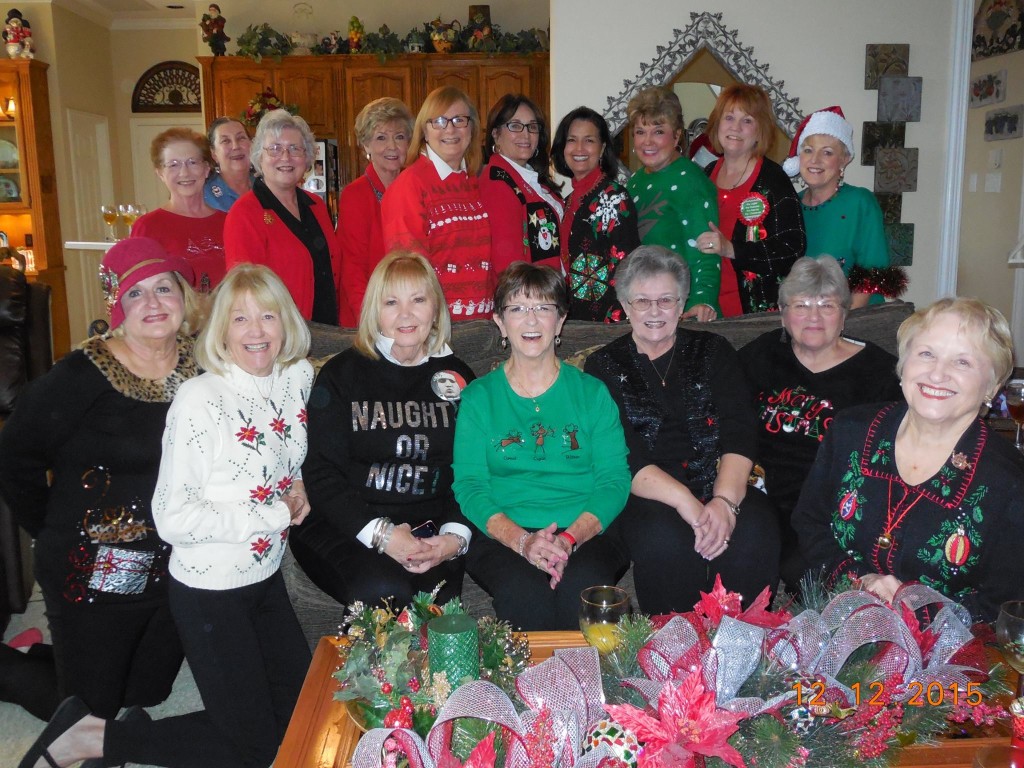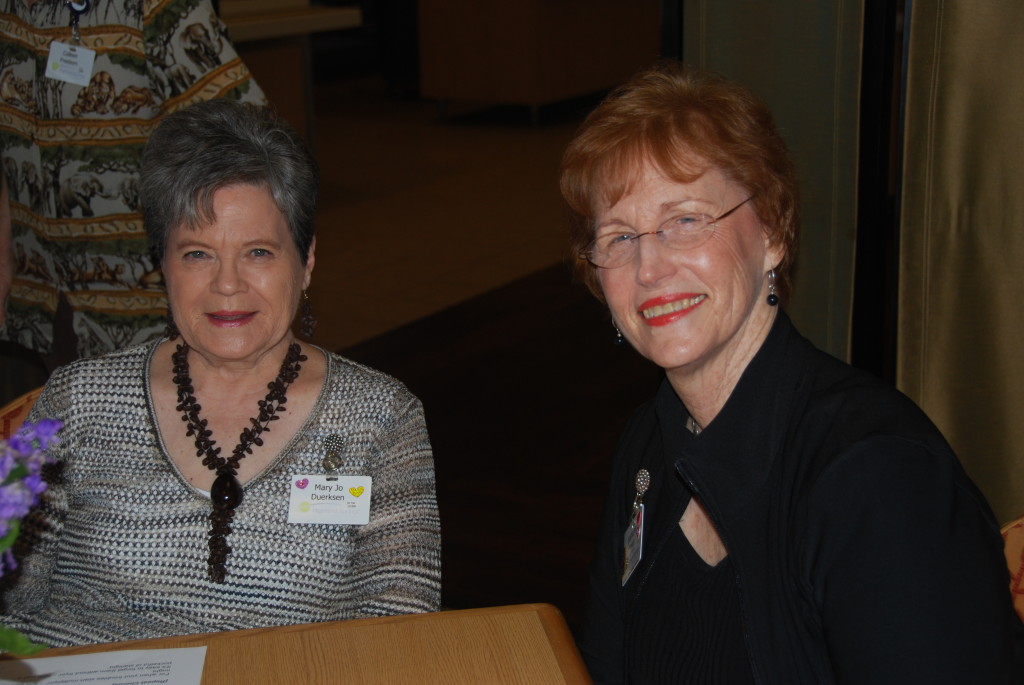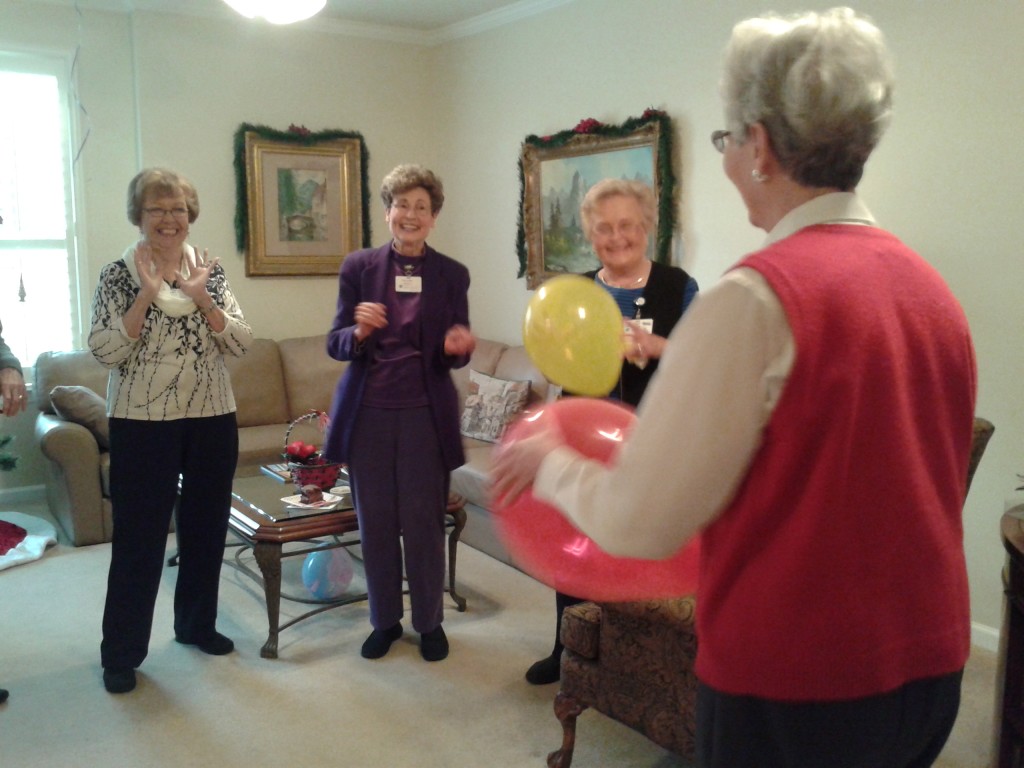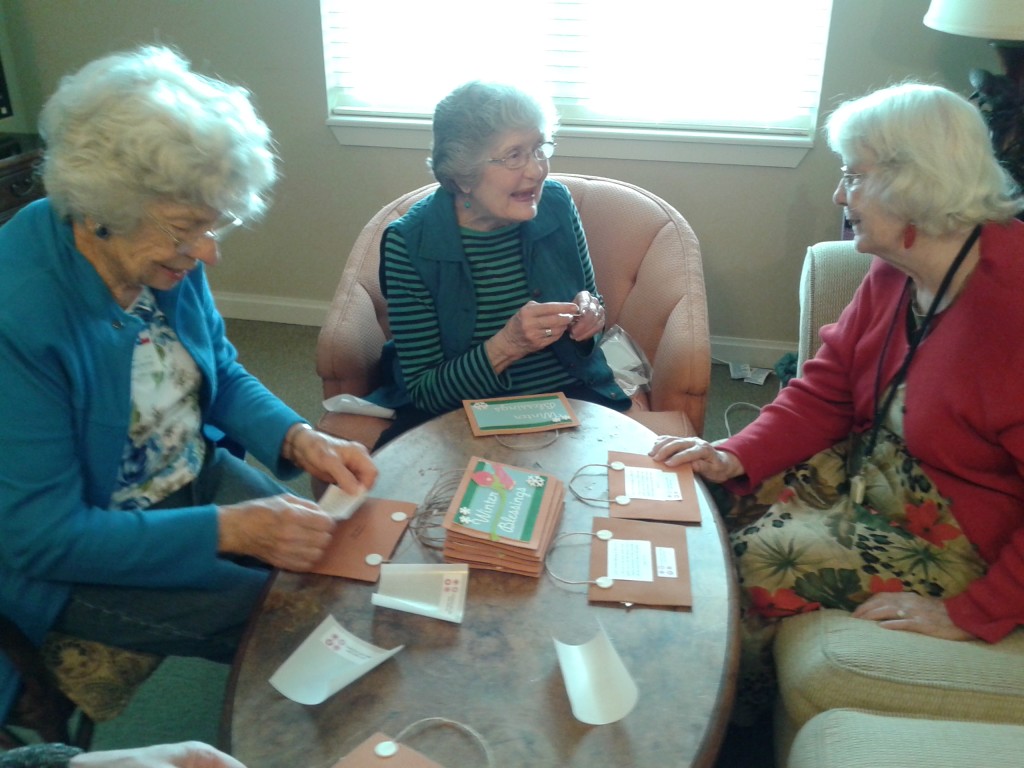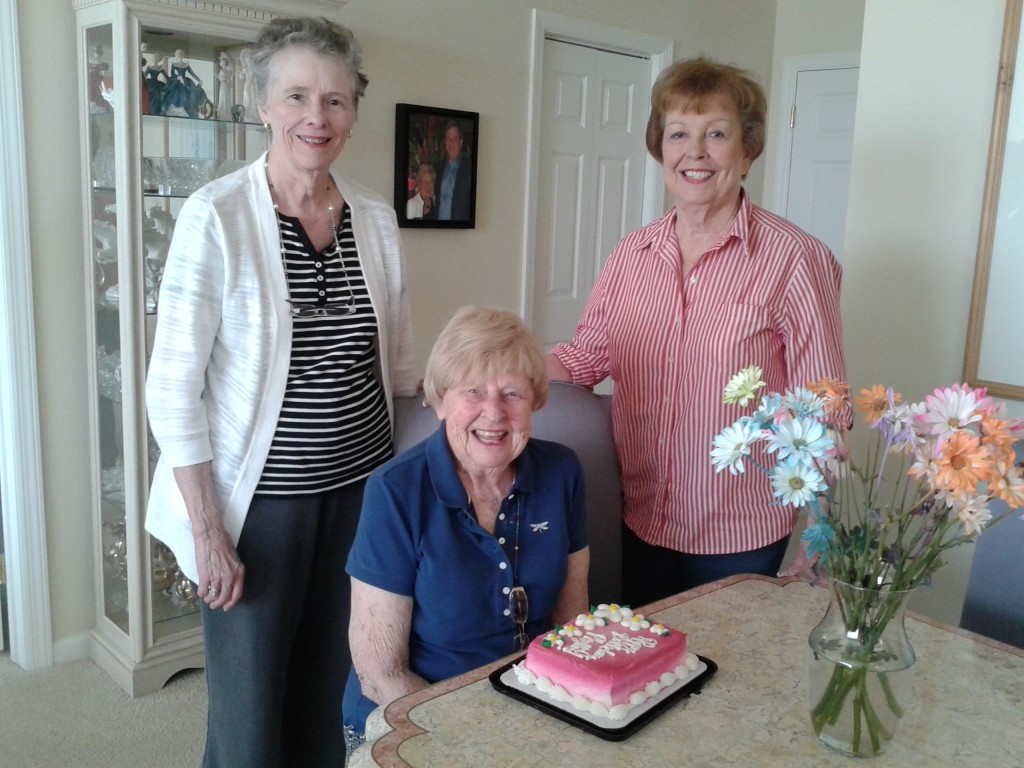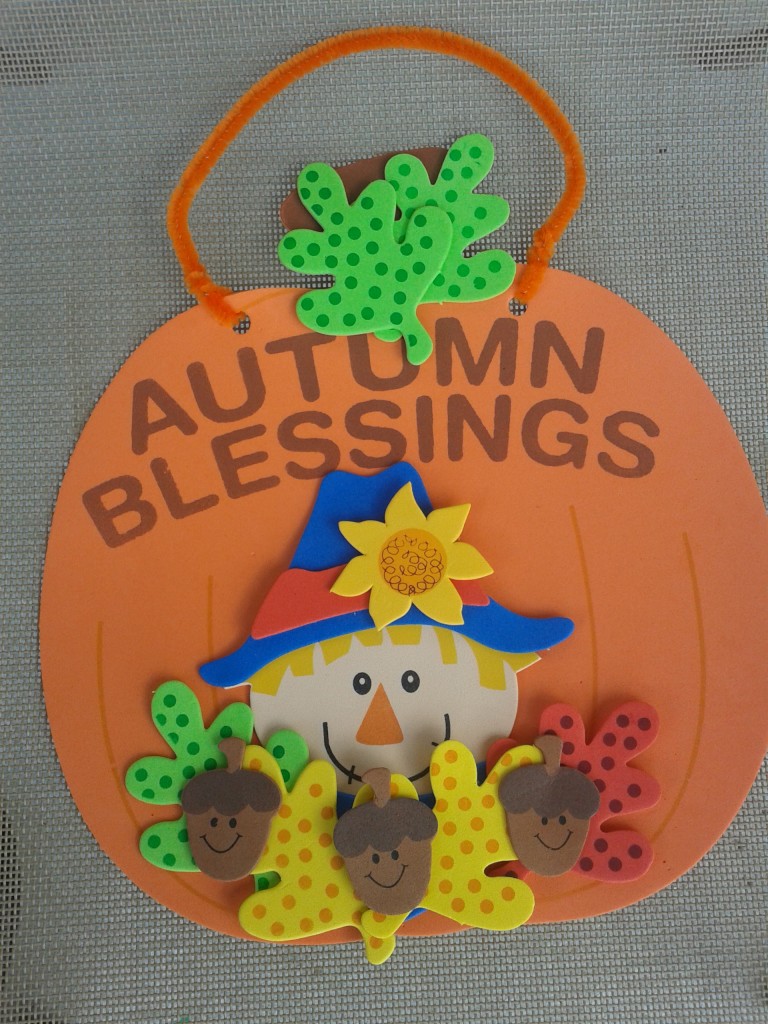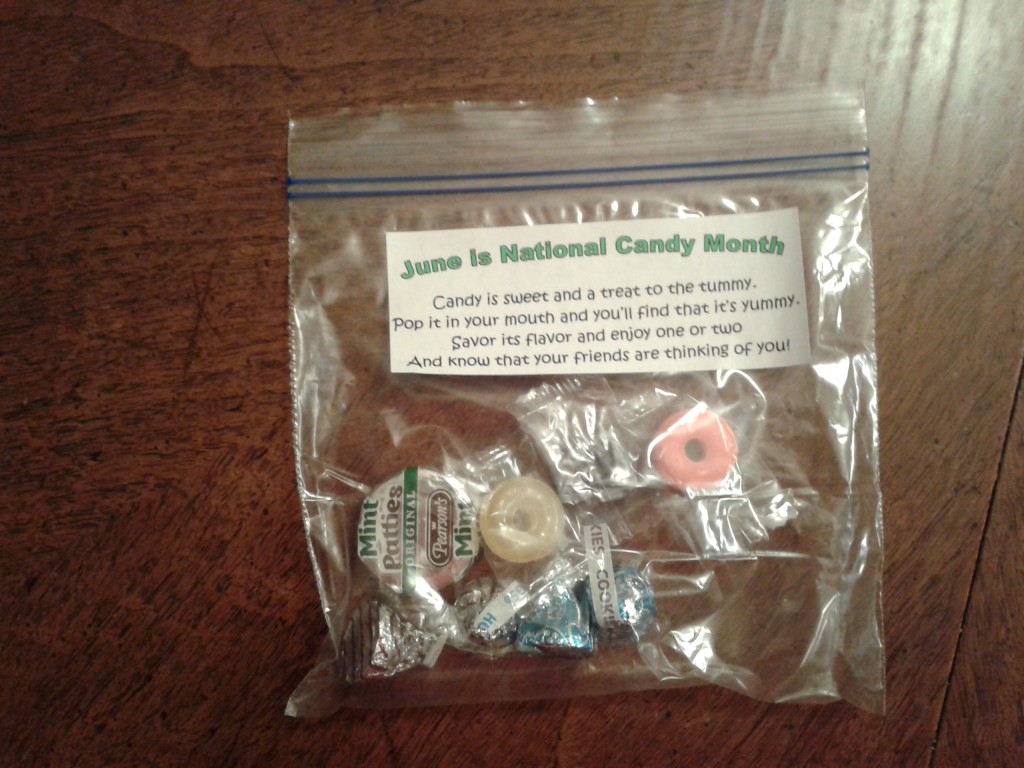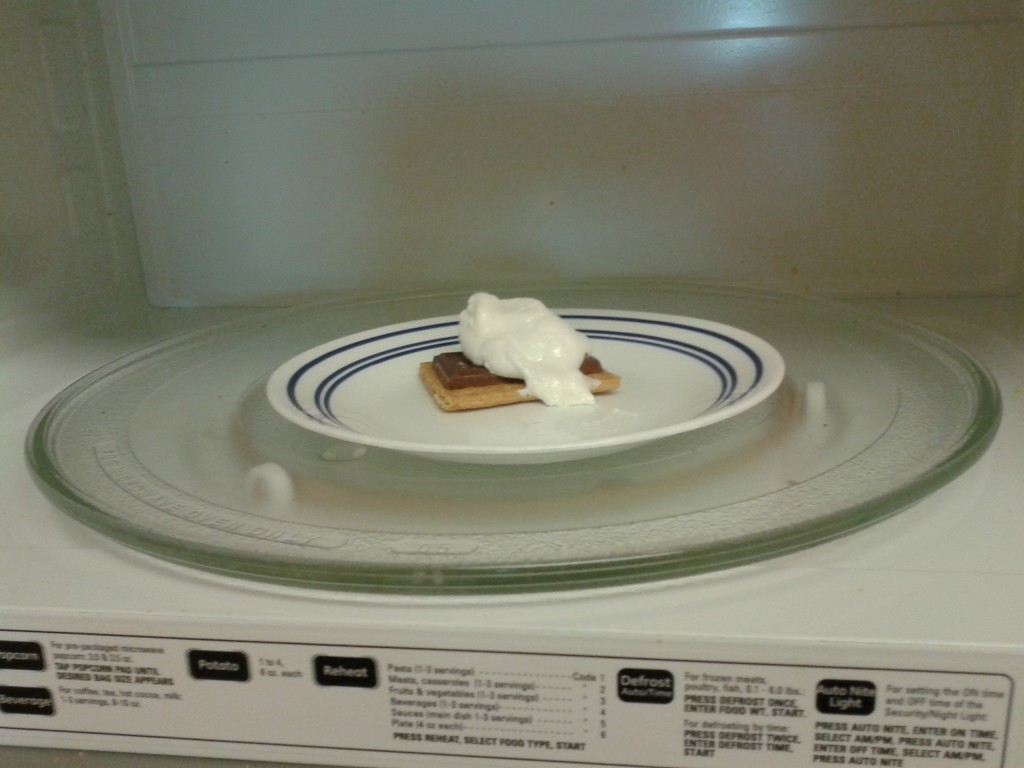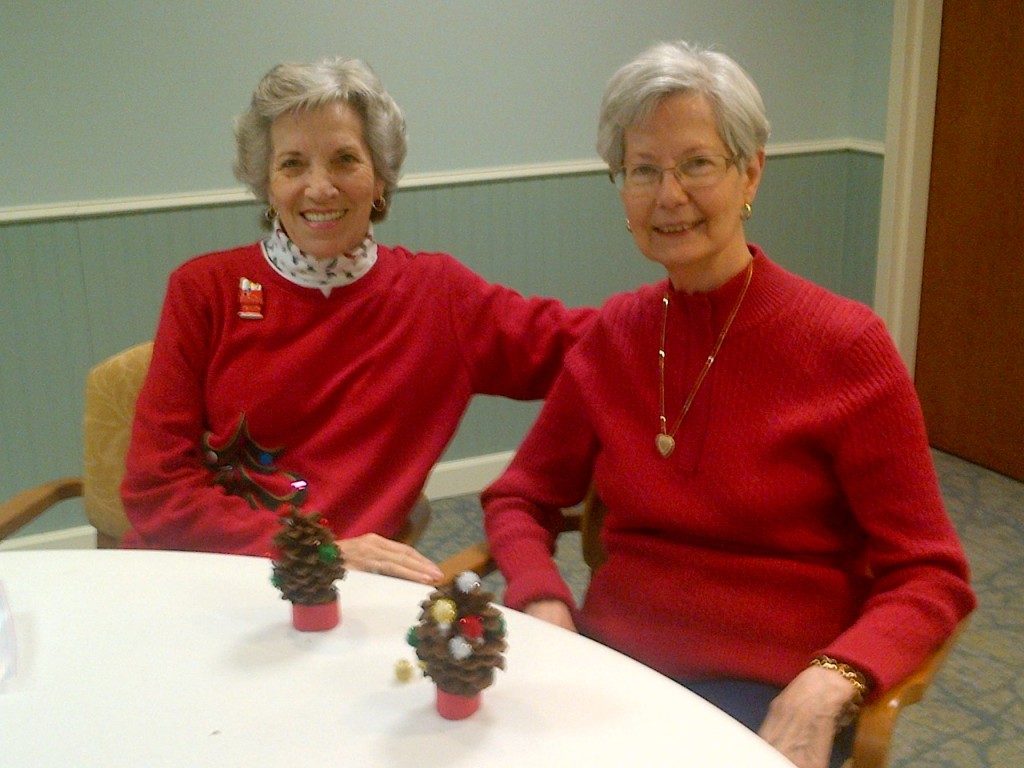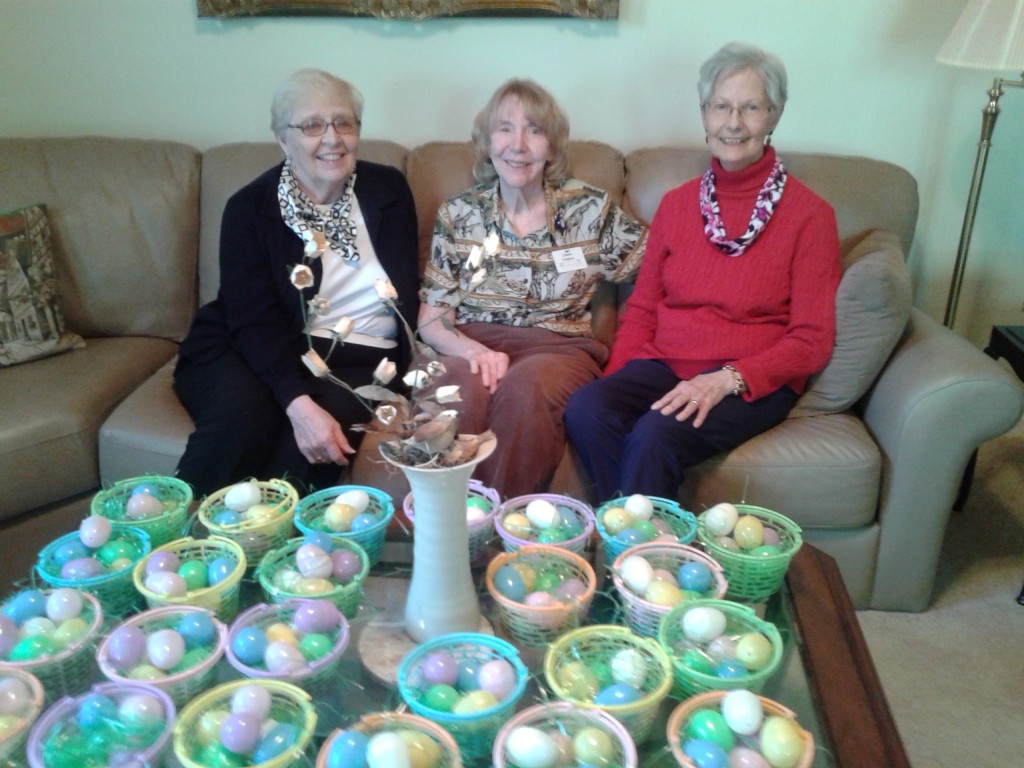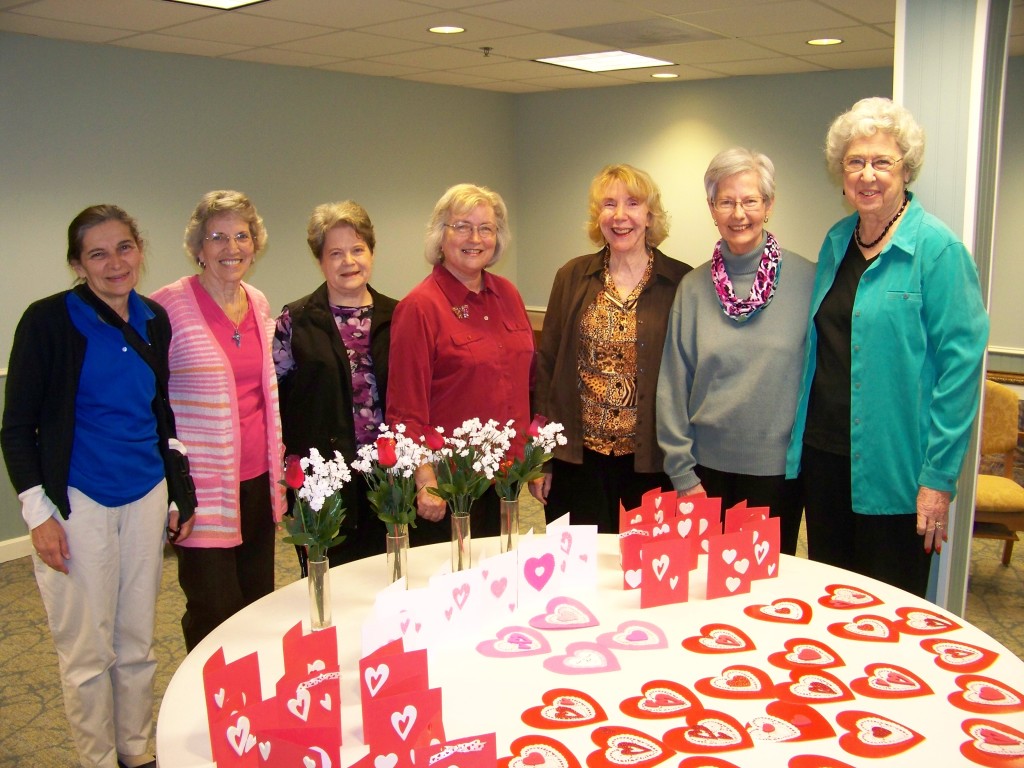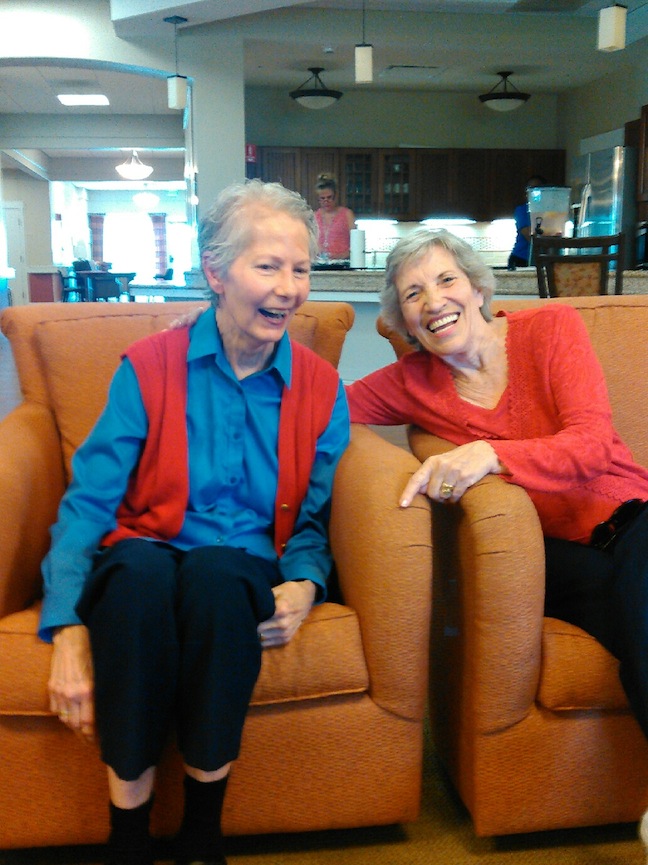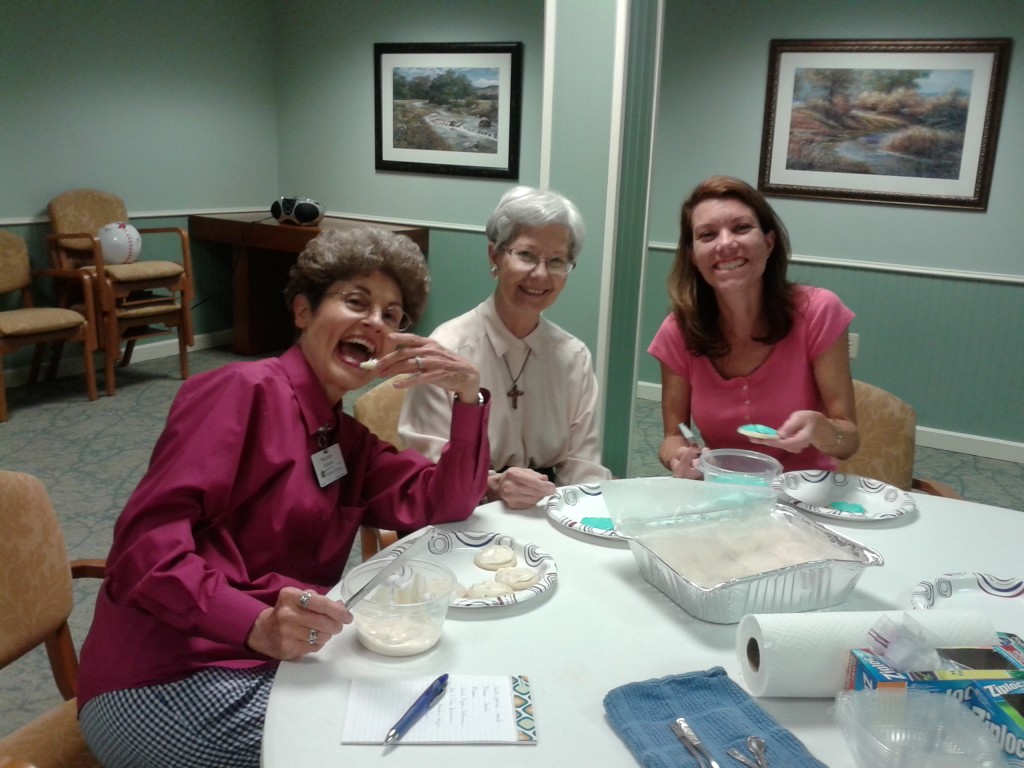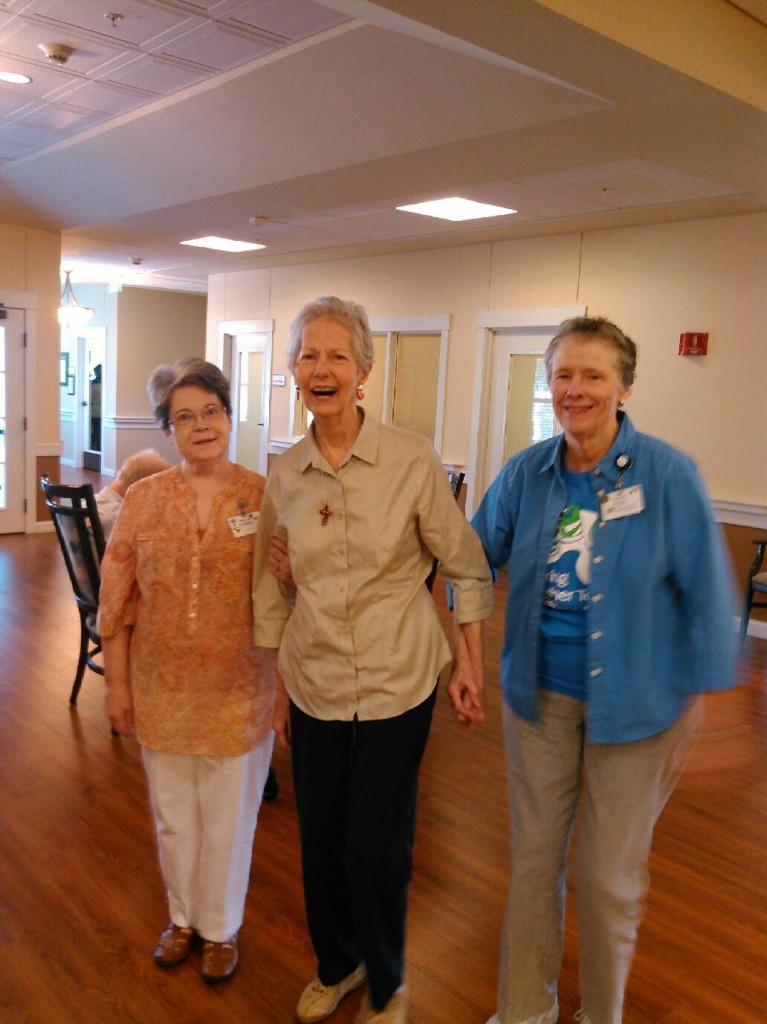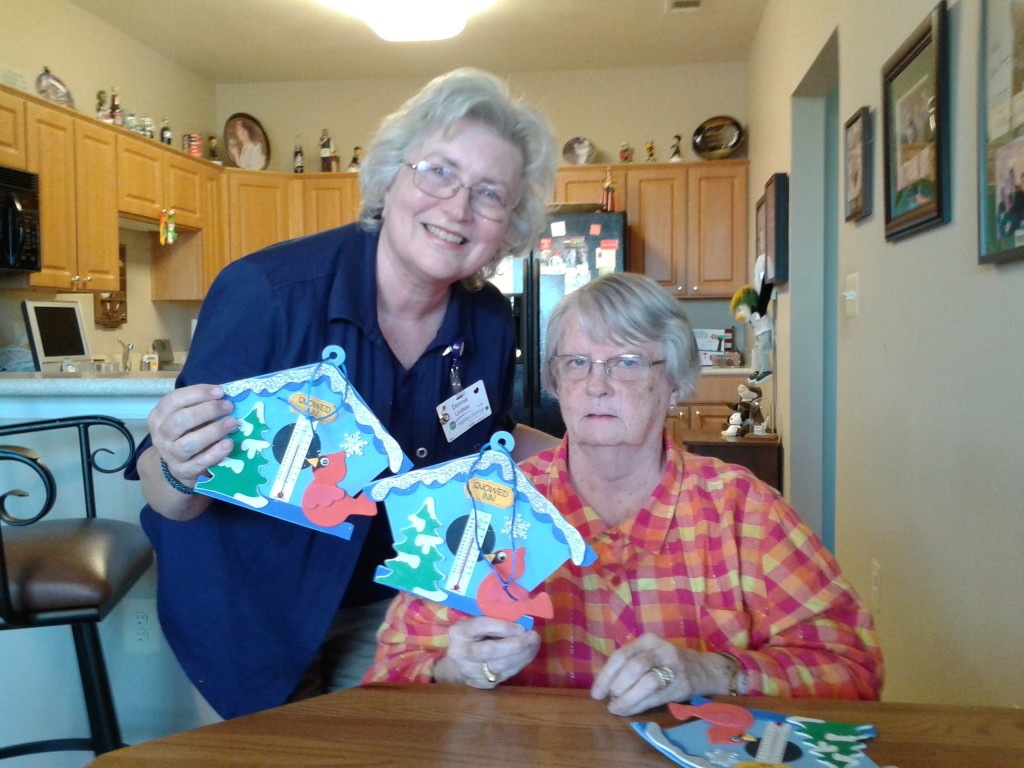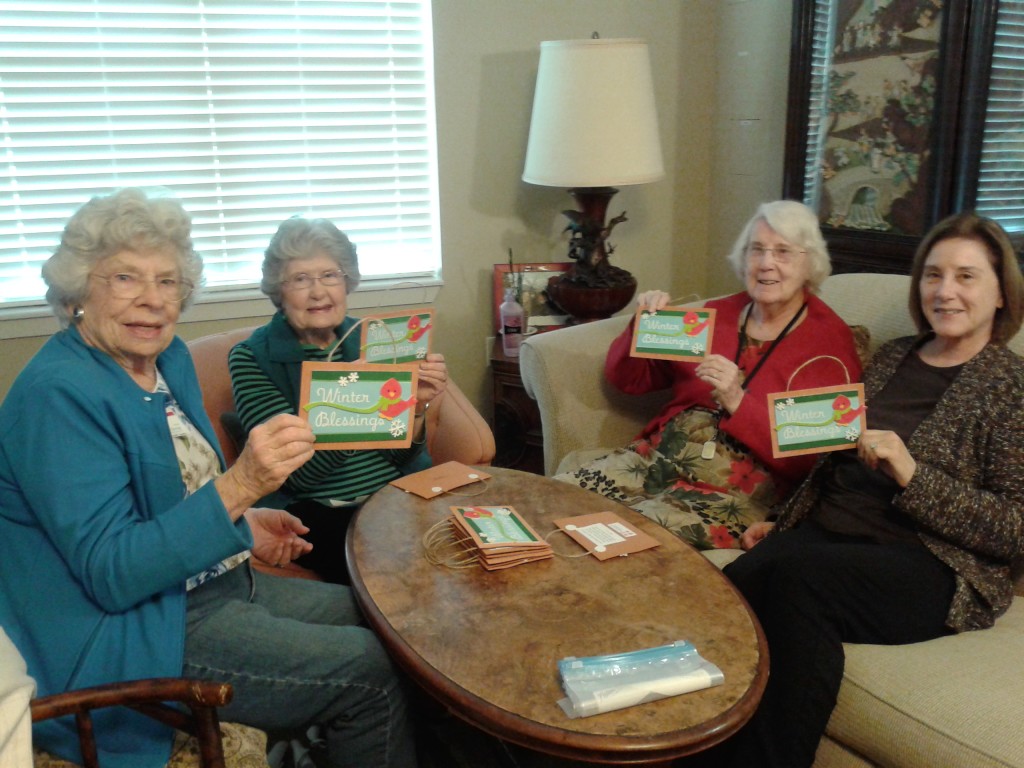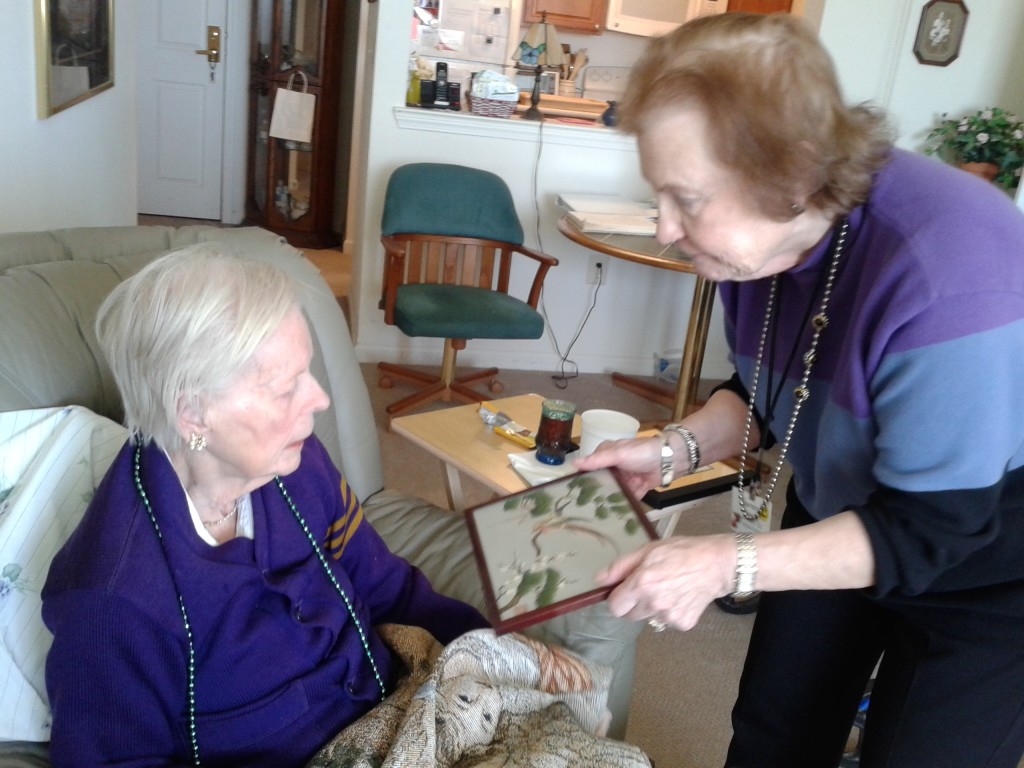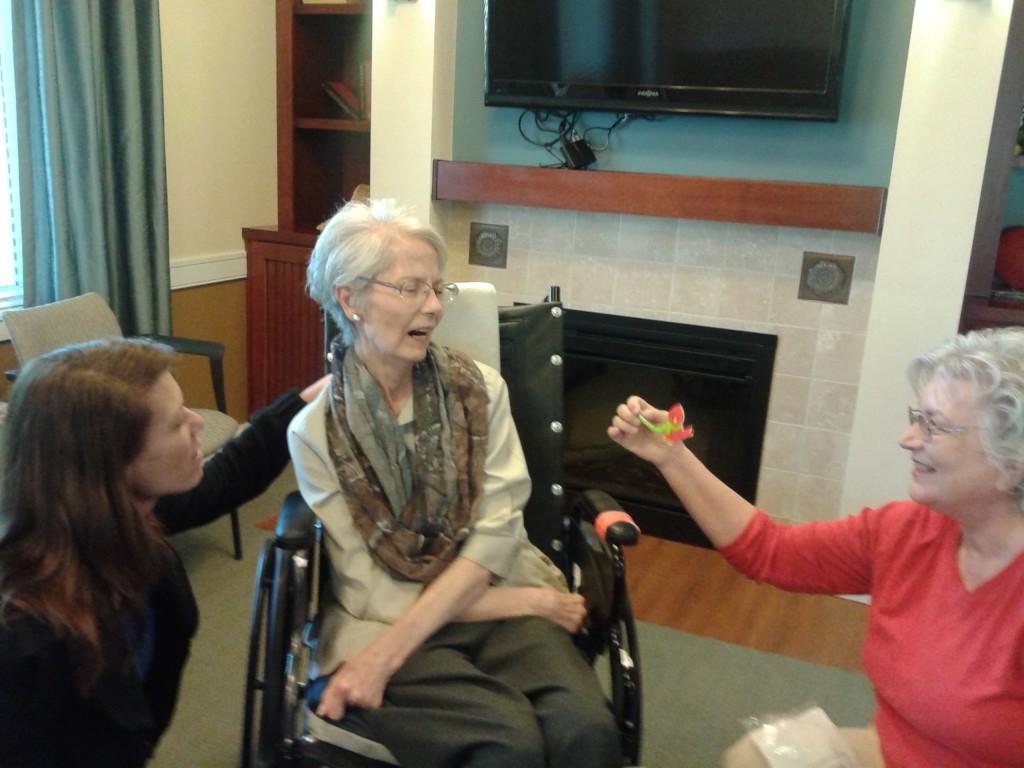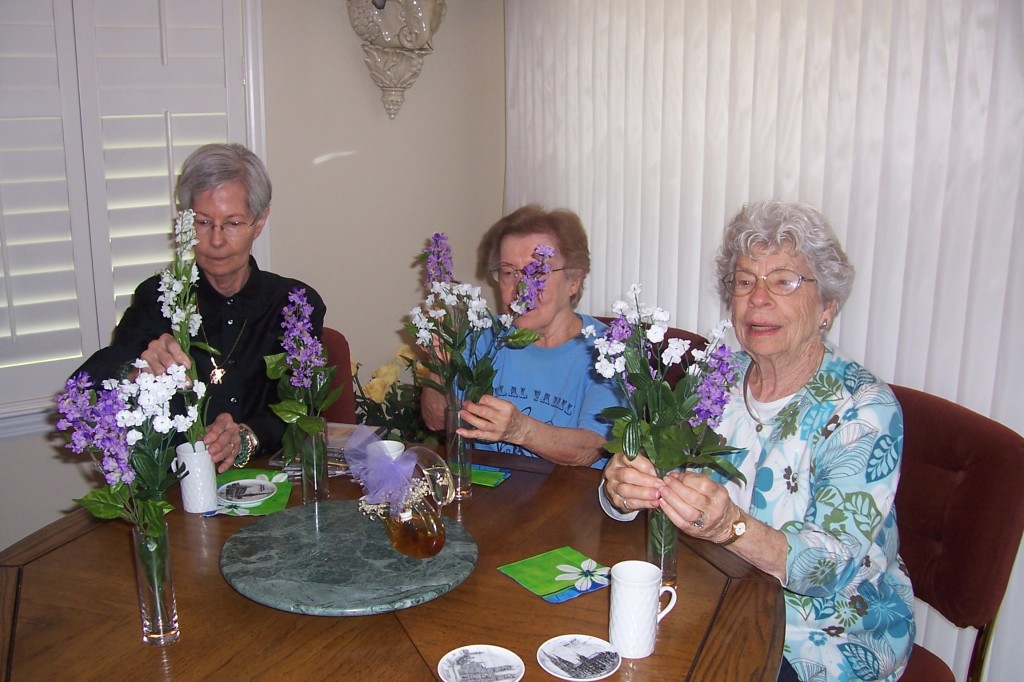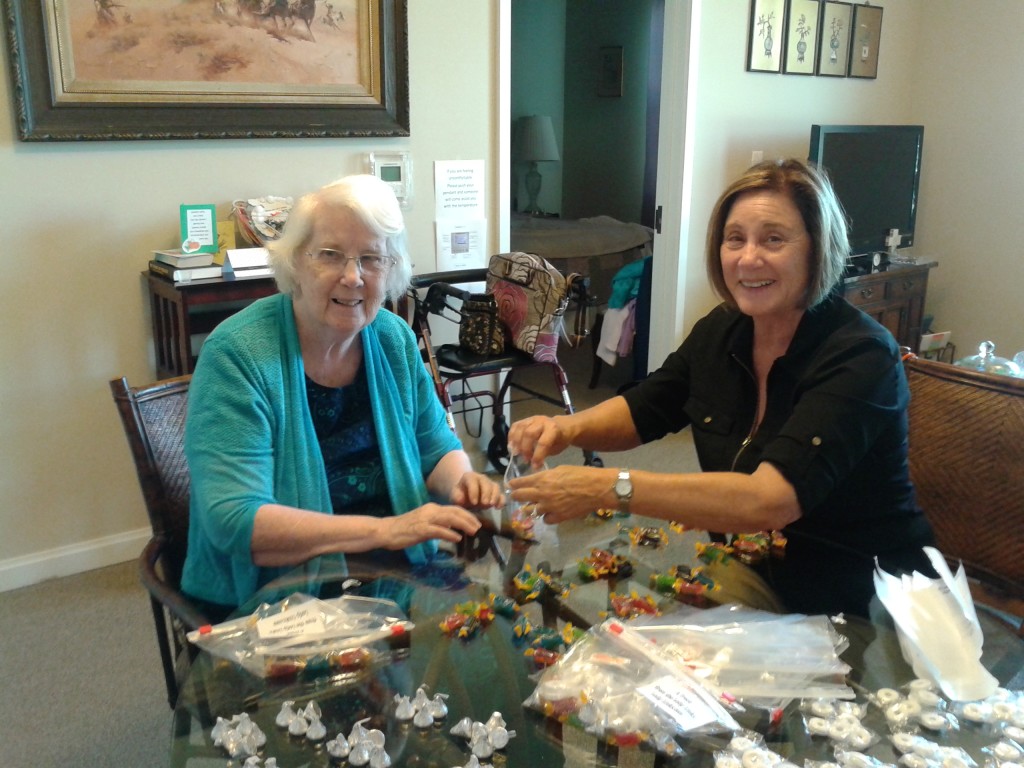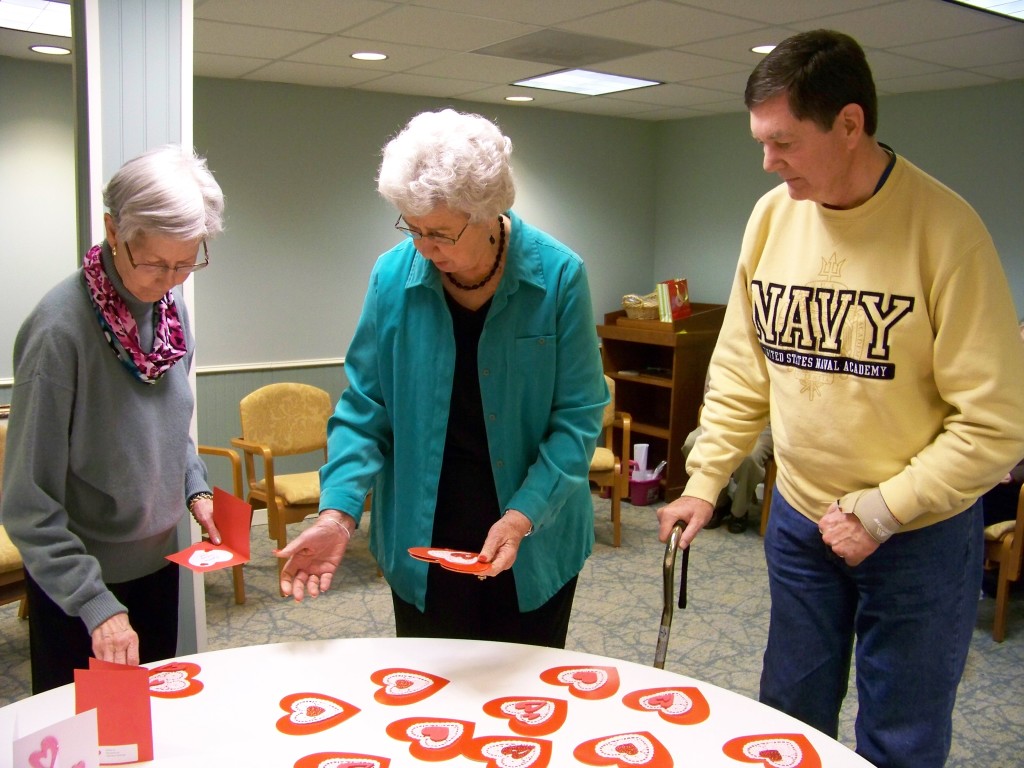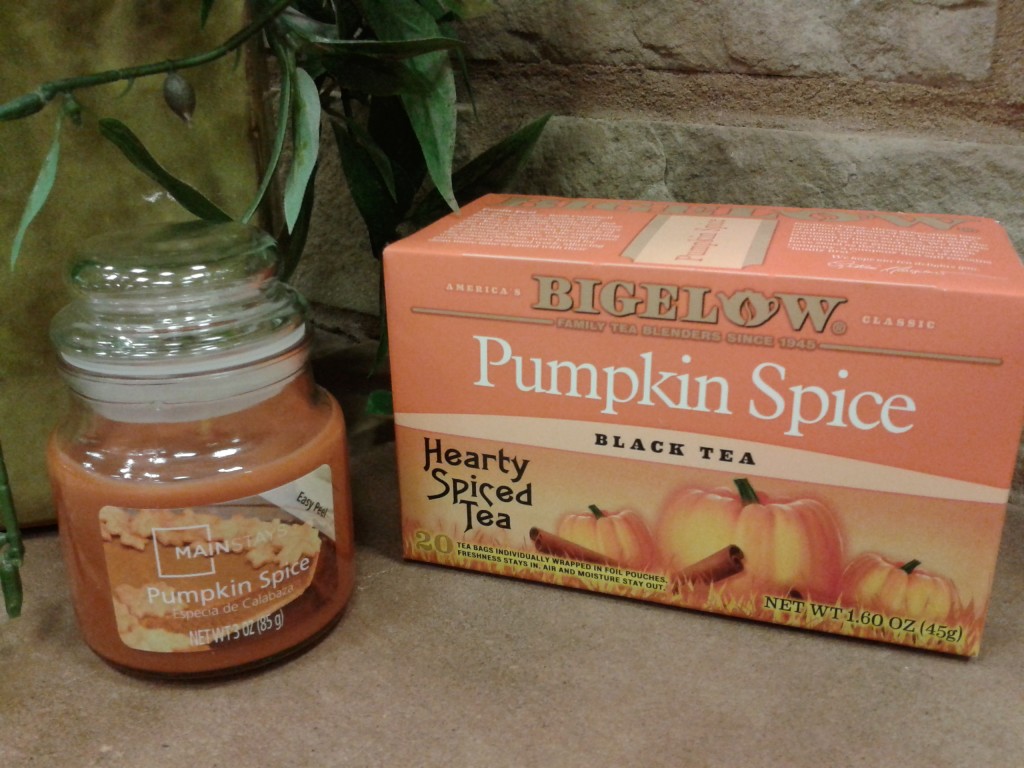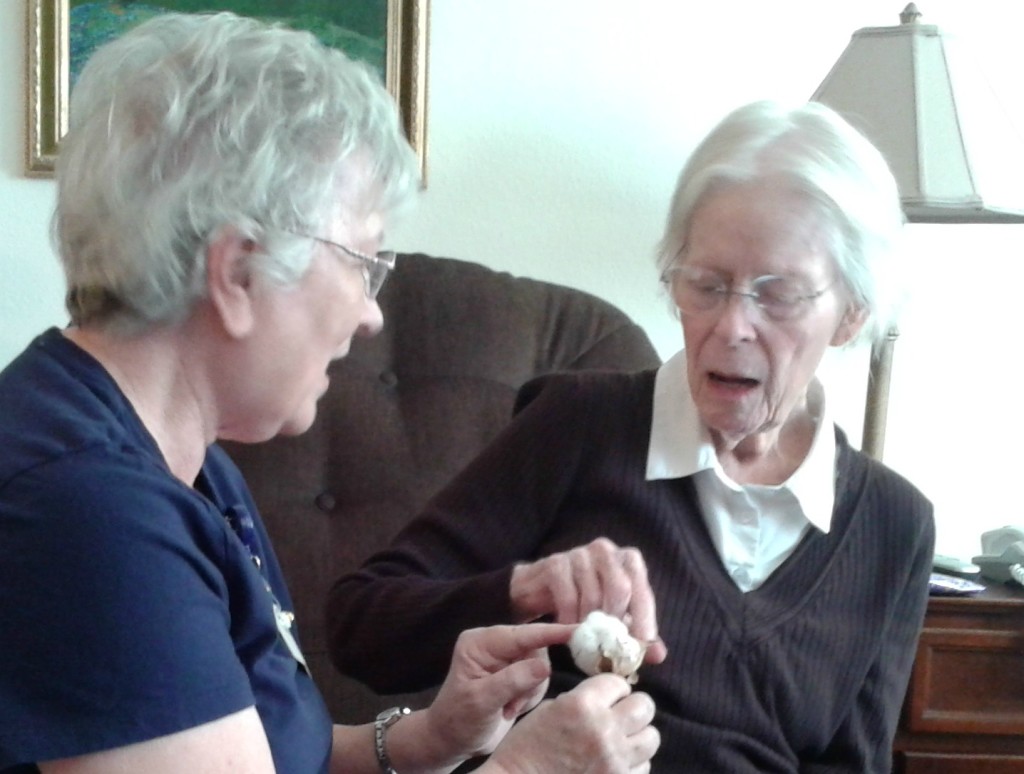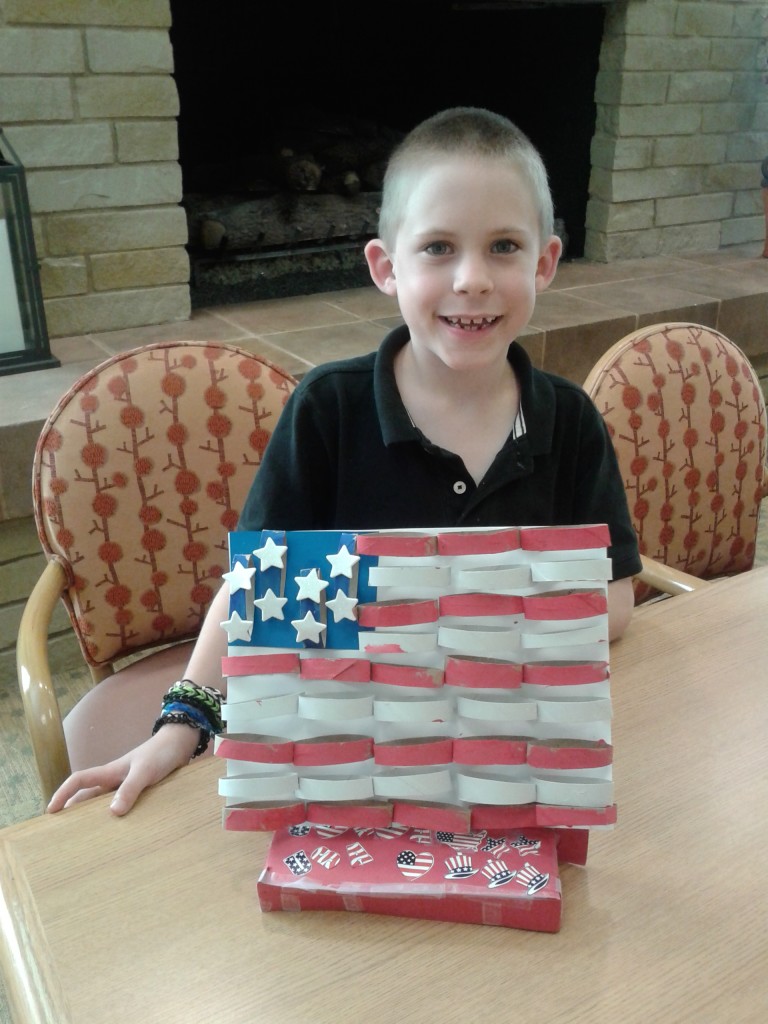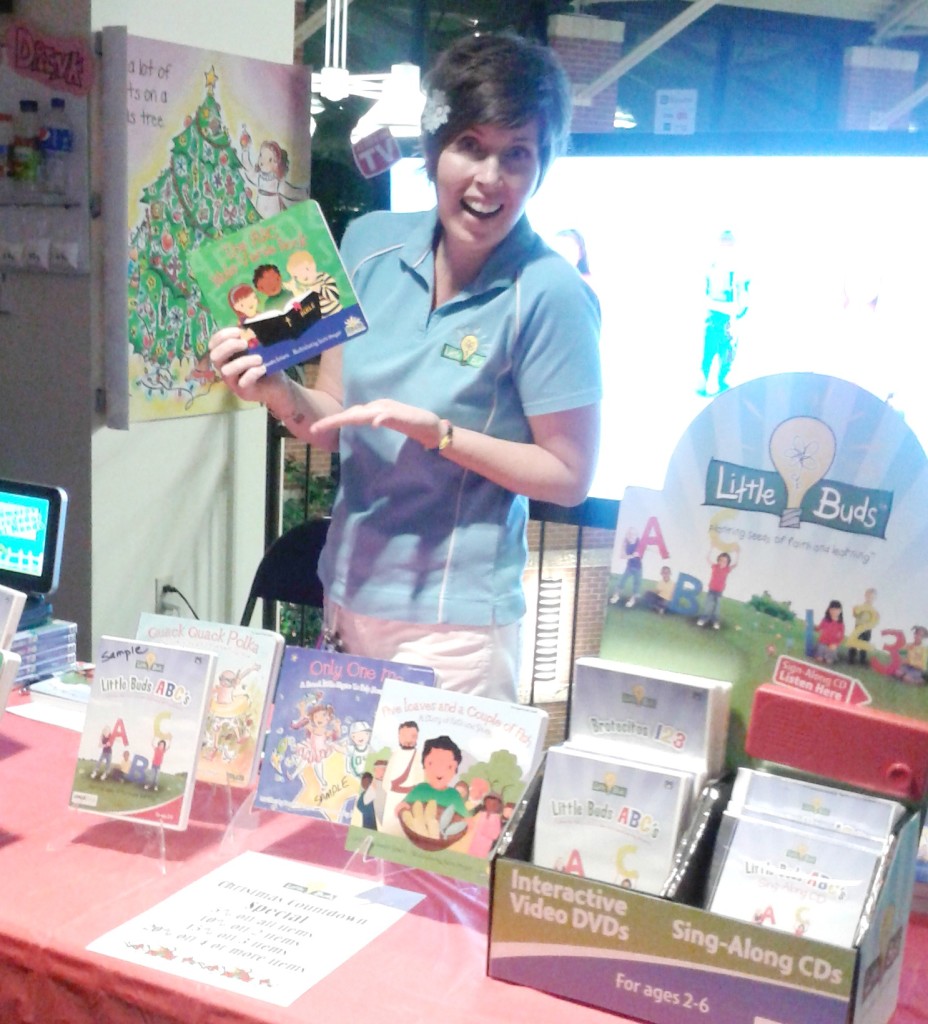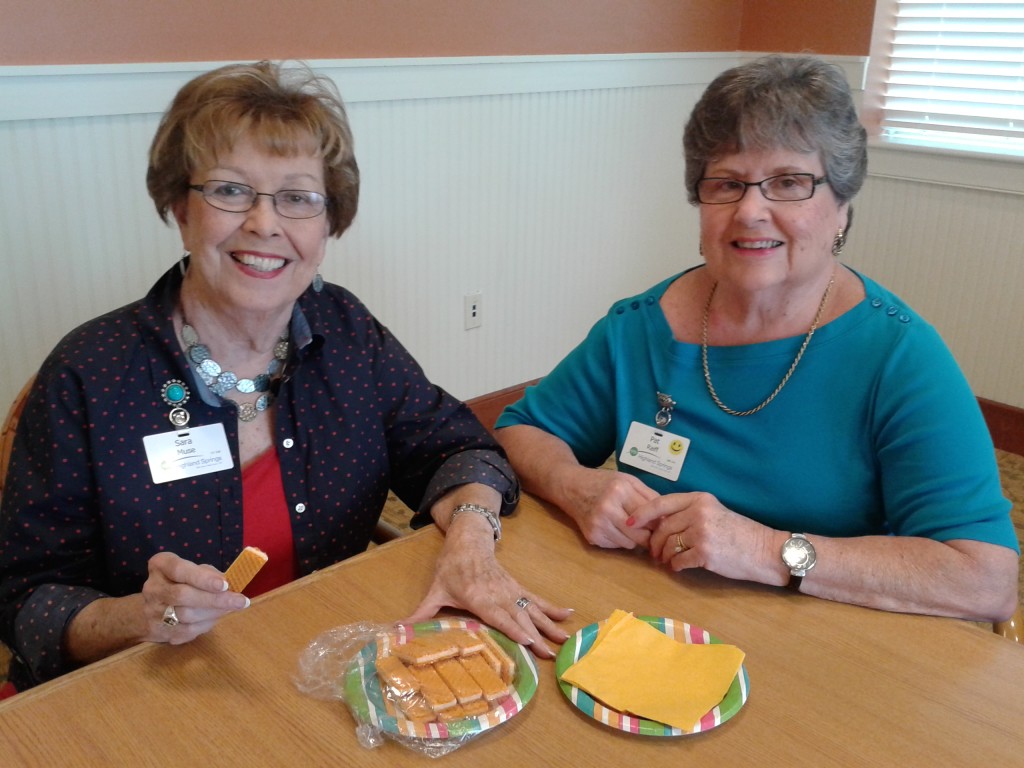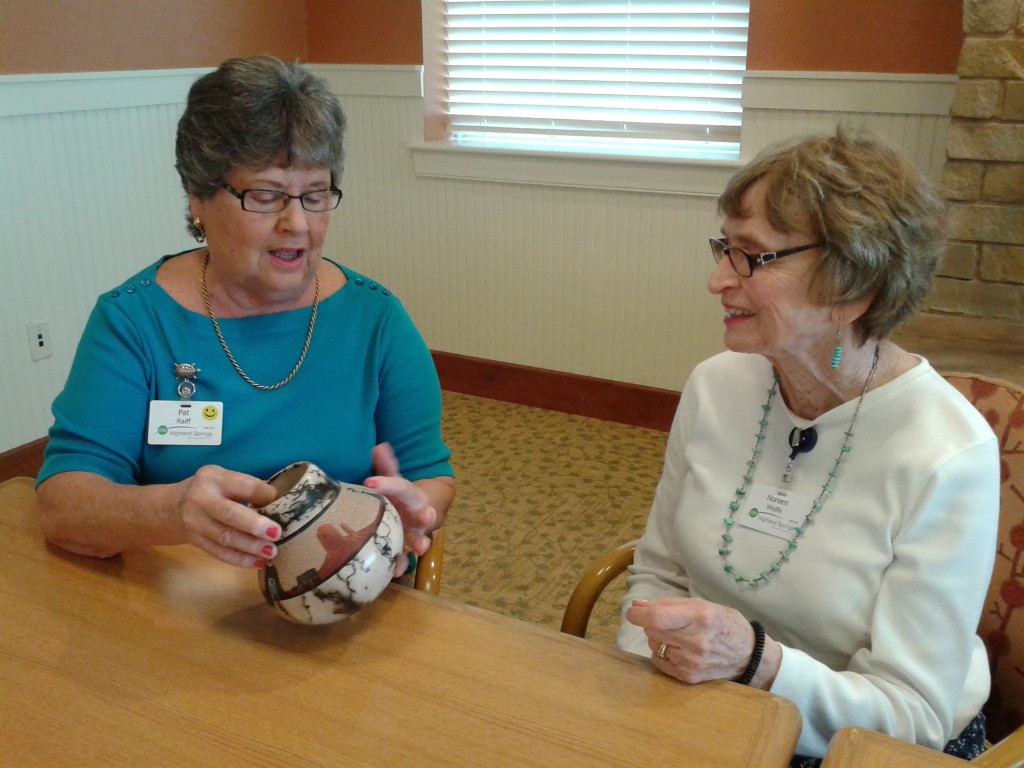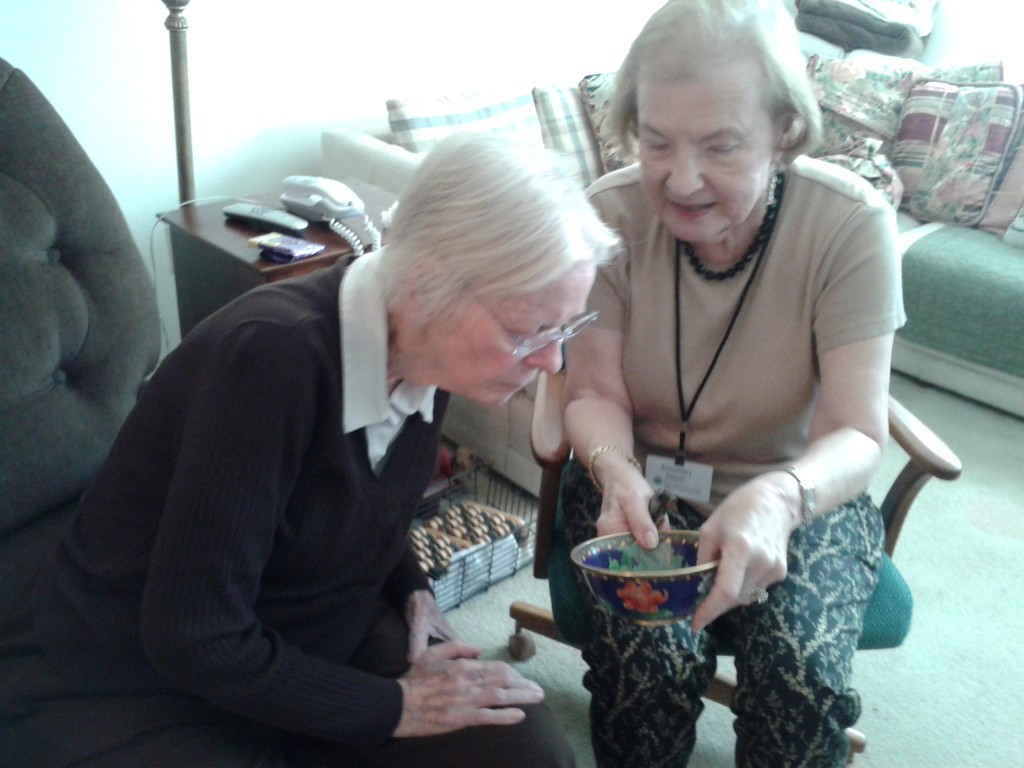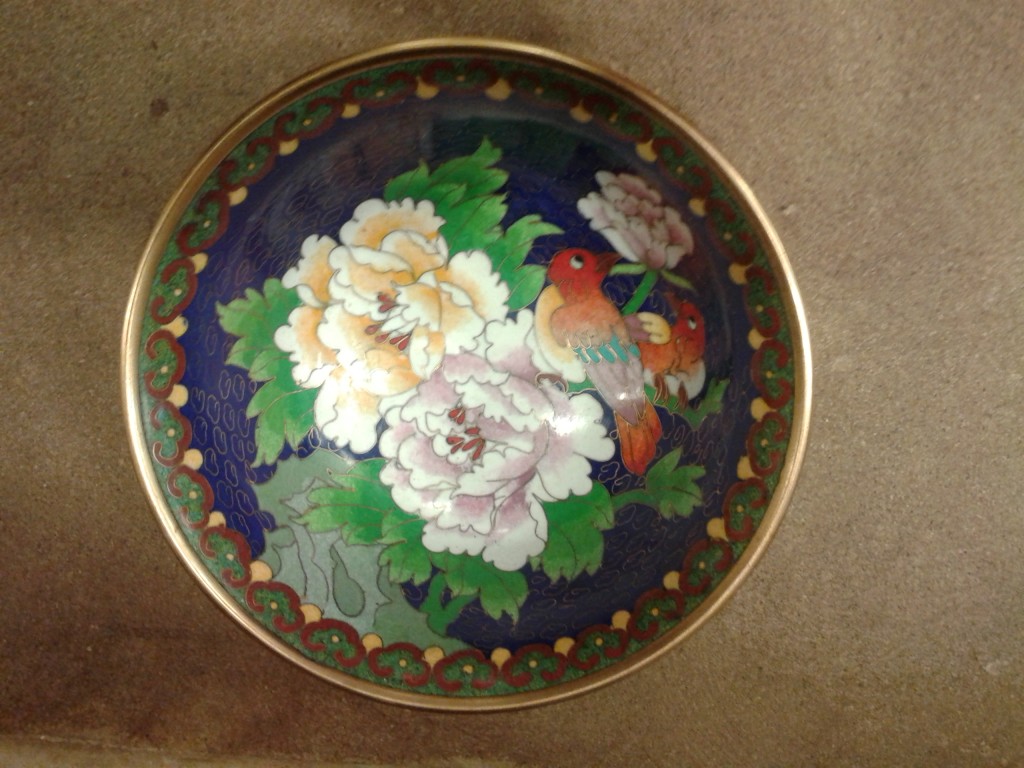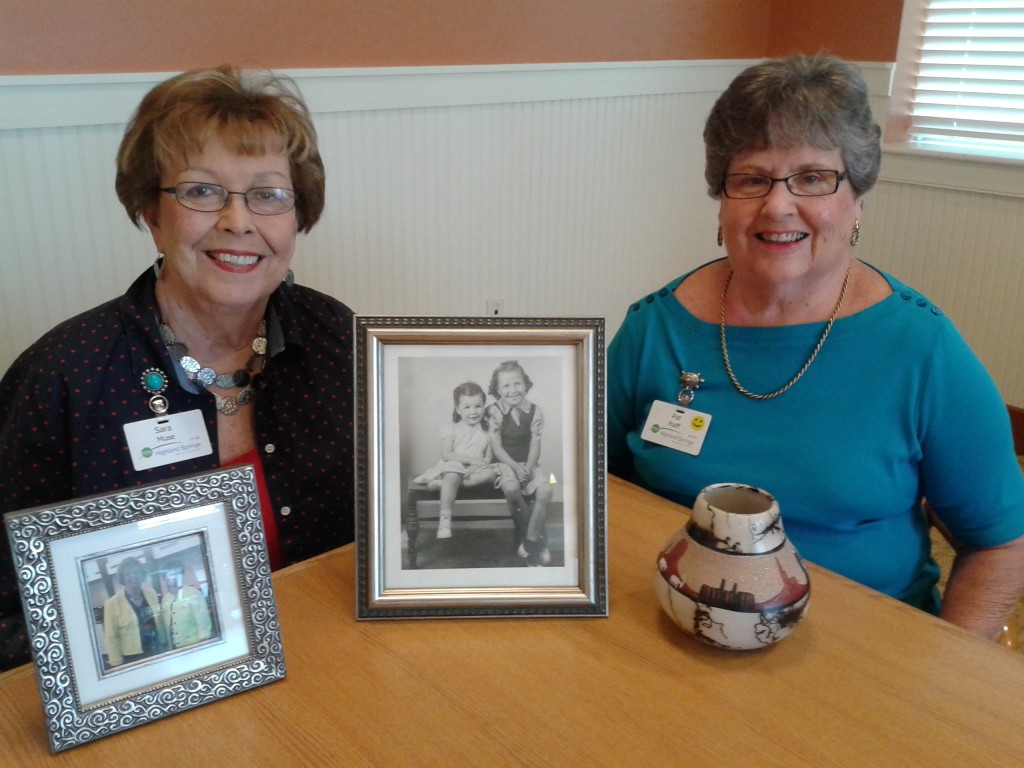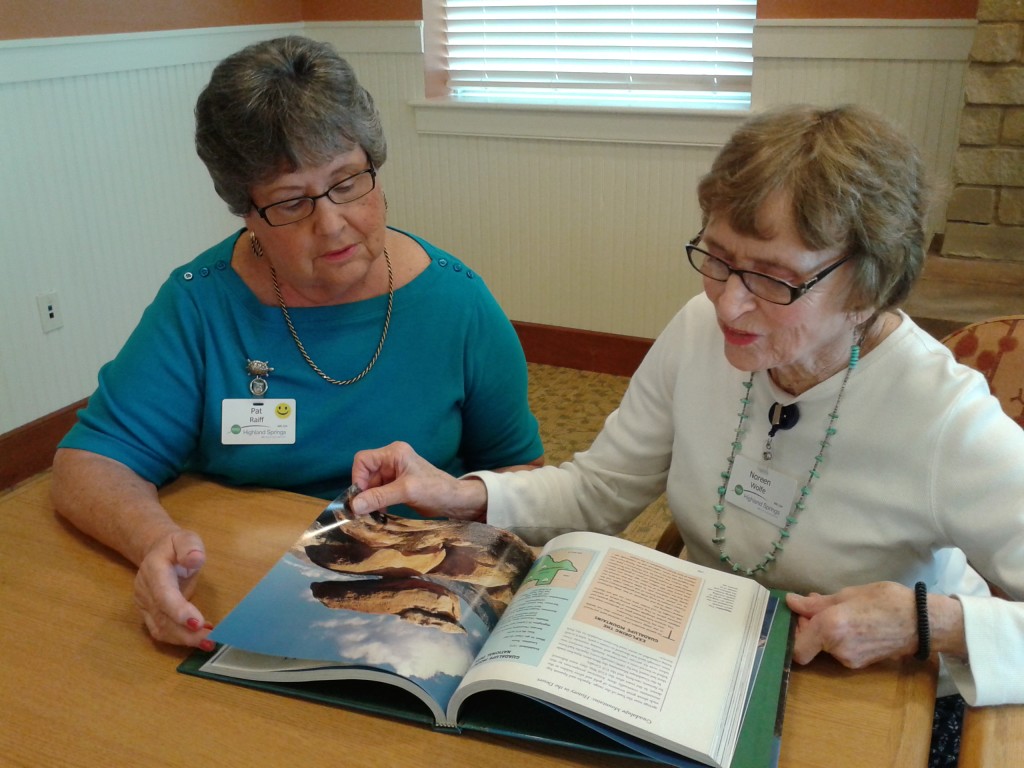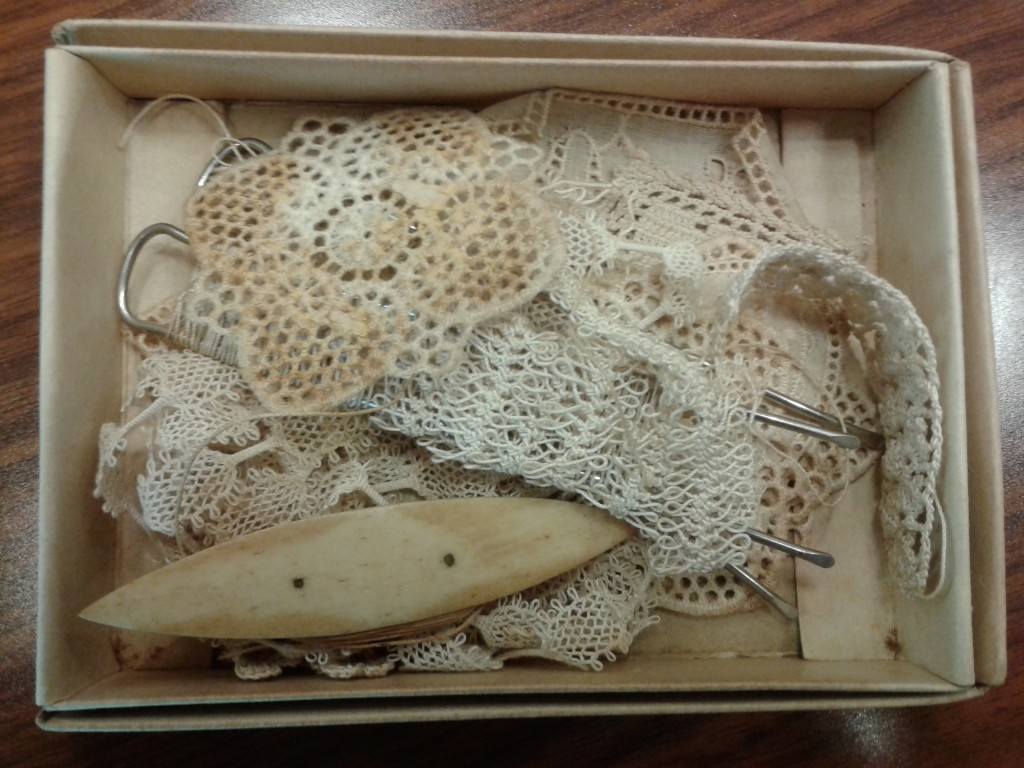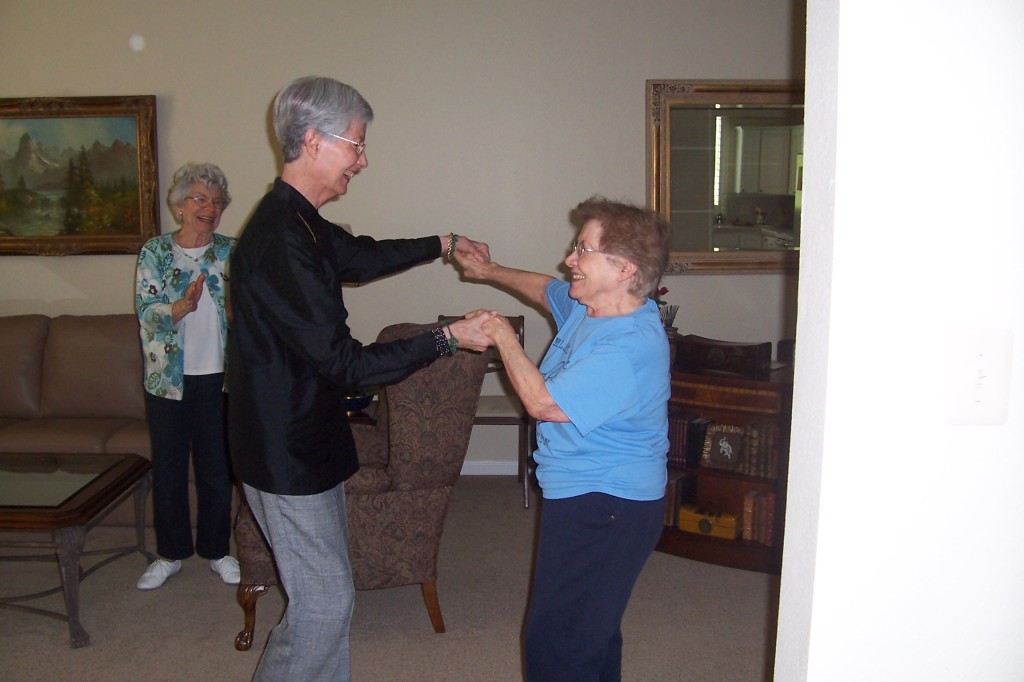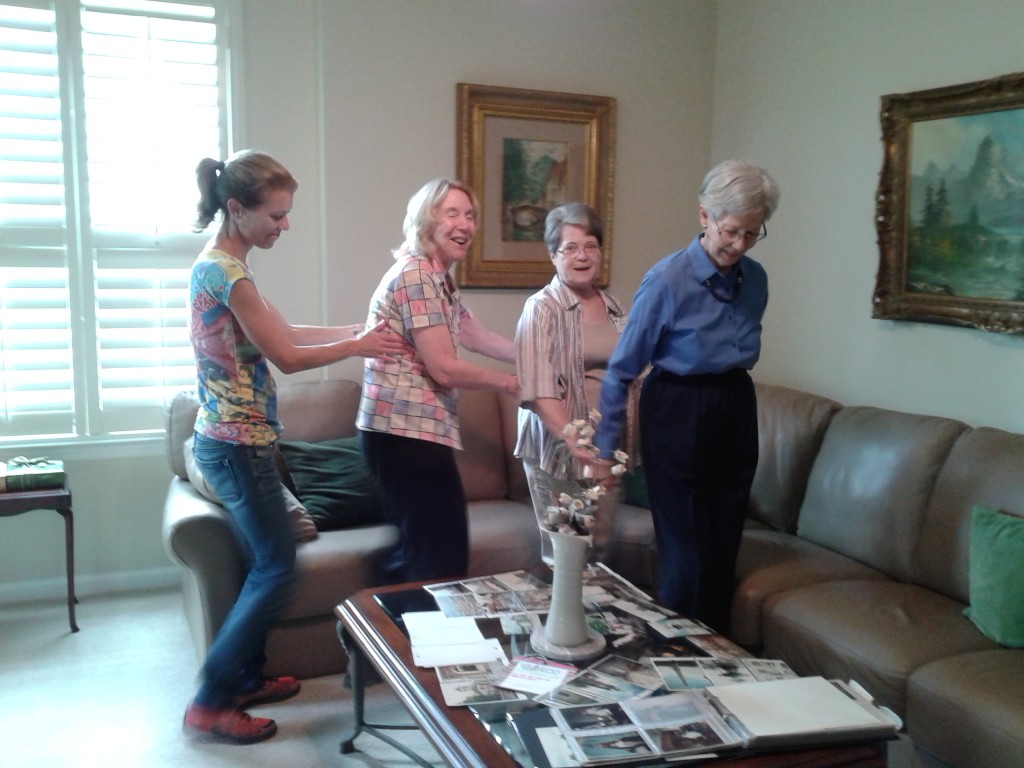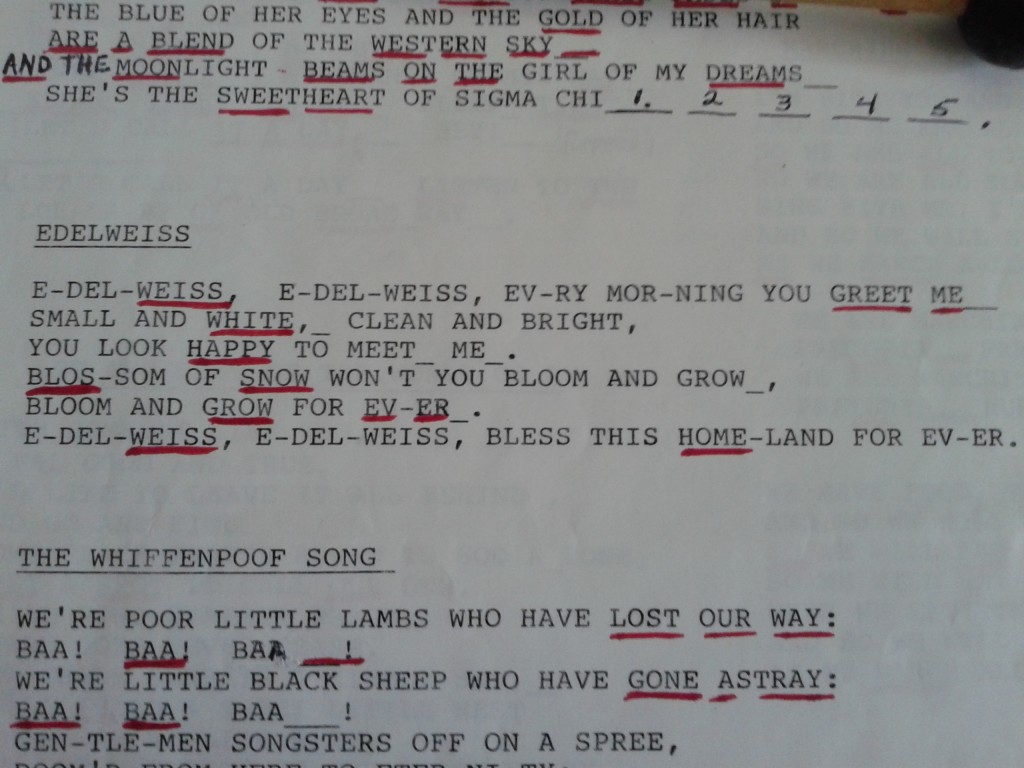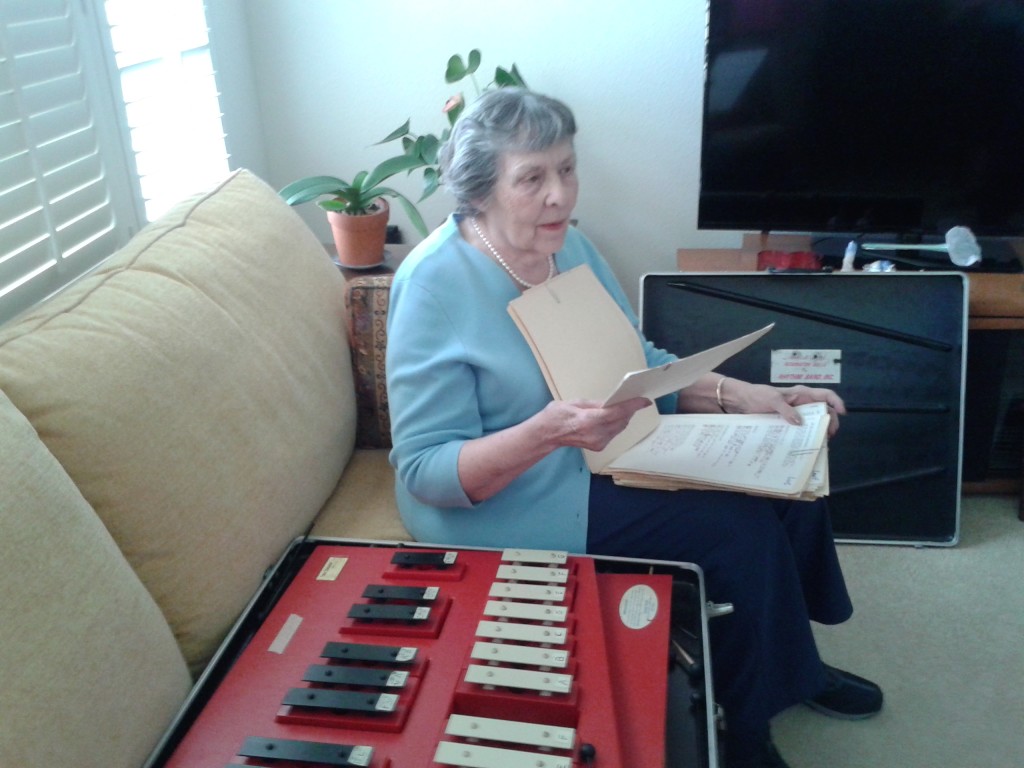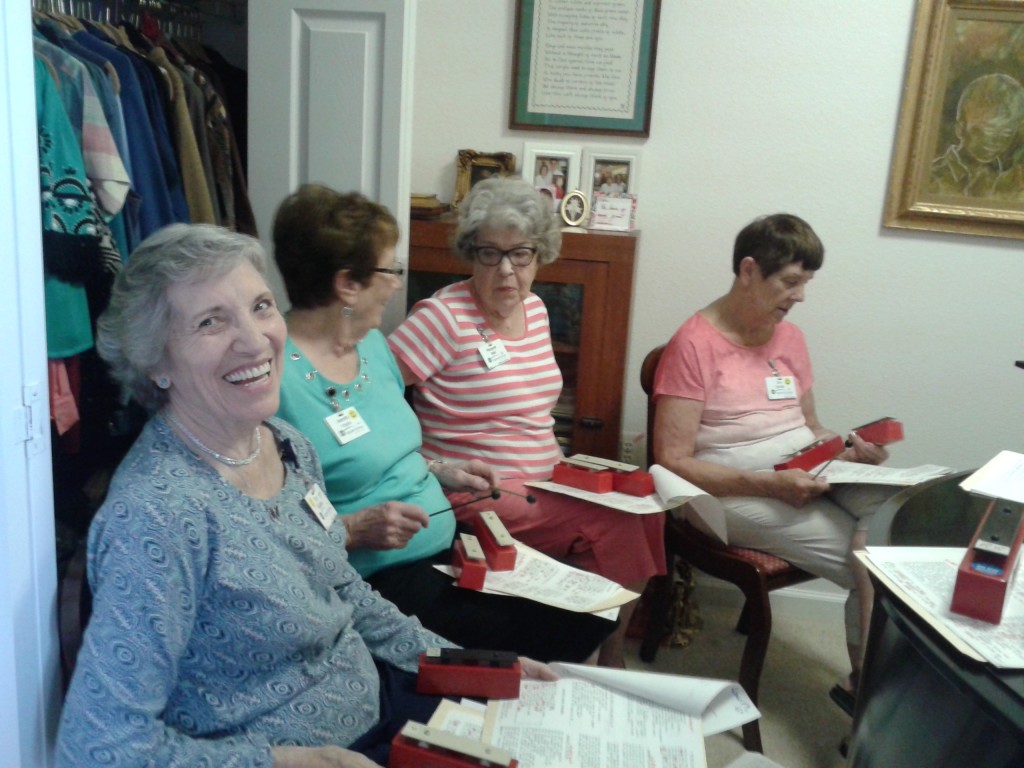Lady-Links is an organization that makes visits to ladies is our retirement community who have dementia, engaging them in activities they enjoy. One of our groups is dedicated to singing and playing hand chimes (resonator bells) while our dear friend plays the piano (yes, she can remember how to play and does so beautifully). We practice each week and have performed several times at events in our community. One word best describes our weekly practice sessions: FUN!
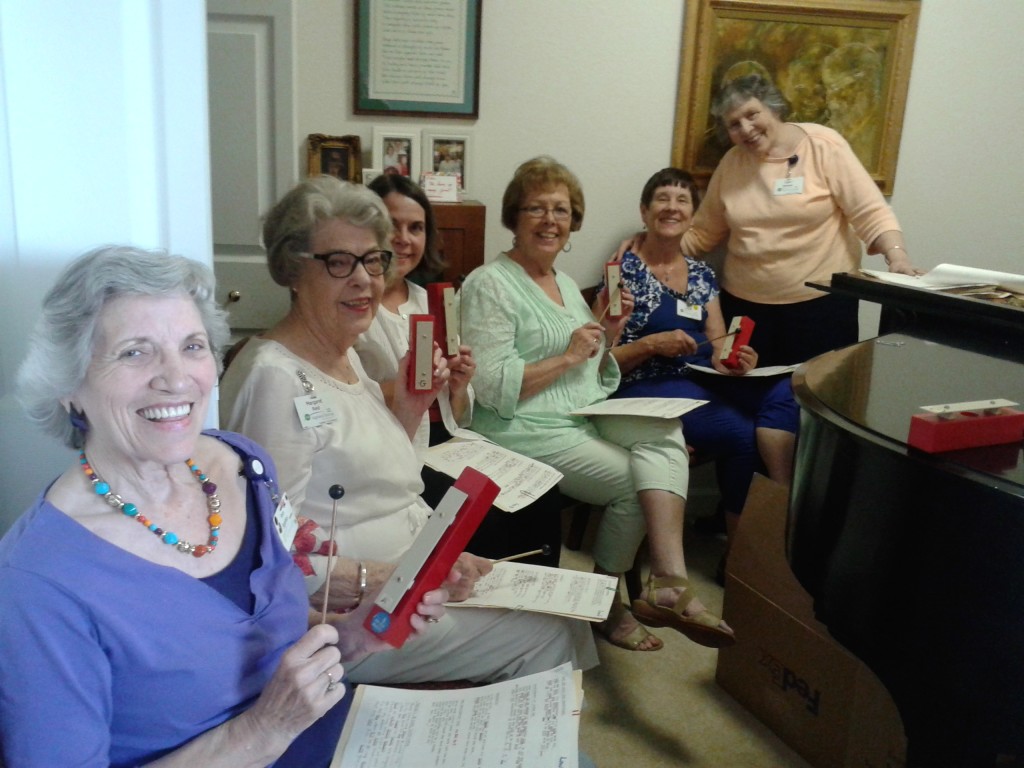 There was a recent pilot study by Dr. Mary Mittelton, NYU Langone Medical Center, on the effects of daily living of people with Alzheimer’s and their family members after sessions of singing together in preparation for a choral performance. This is of interest to Lady-Links since we have something similar. Our Ring and Sing gals are friends, not caregivers, but we do meet weekly and practice for our performances. Our dear friend is a former music teacher and had the hand chimes and music from years ago. We saw a way to link her past to the present in a weekly activity that she would enjoy as well as provide a way she could contribute her talents (and equipment) to something beneficial for the whole community.
There was a recent pilot study by Dr. Mary Mittelton, NYU Langone Medical Center, on the effects of daily living of people with Alzheimer’s and their family members after sessions of singing together in preparation for a choral performance. This is of interest to Lady-Links since we have something similar. Our Ring and Sing gals are friends, not caregivers, but we do meet weekly and practice for our performances. Our dear friend is a former music teacher and had the hand chimes and music from years ago. We saw a way to link her past to the present in a weekly activity that she would enjoy as well as provide a way she could contribute her talents (and equipment) to something beneficial for the whole community.
Dr. Mittelton’s pilot study described the experience as “sharing a stimulating and social activity” and that it would “improve the well-being and quality of life for all participants.” At Lady-Links, we found that our practice sessions were not only stimulating (hitting the bell at the appropriate time while singing) but that they were quite social as well. We have shared funny stories that words from the songs have brought to mind as well as travel adventures (Edelweiss…one of our ladies actually has a pressed Edelweiss flower and brought that to show us).
The study found, as was expected, that the majority of people with dementia improved on self-rated “quality of life, self-esteem, and communication with family and friends.” In addition, the majority of caregivers reported improvement in “health related quality of life and social support.” The Ring and Sing Lady-Links Gals are quick to recognize how true the above mentioned study is regarding benefits for all the participants.
Our dear friend has the opportunity to use her skills, abilities, and talents as she “directs” the group. She tells us that it is her favorite time of the week.
The Ring and Sing Lady-Links Gals love it because we have so much fun while achieving a common goal (successfully playing about 15 songs) and because we are involved in an activity which helps our dear friend feel significant and valued.
The Lady-Links agree with the study’s findings that this type of group choral experience is “pleasurable and validating for participants.”
You can read more about the study on the Alzheimer’s Reading Room website at alzheimersreadingroom.com.
